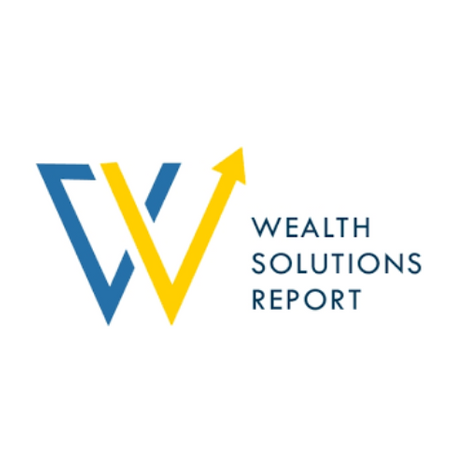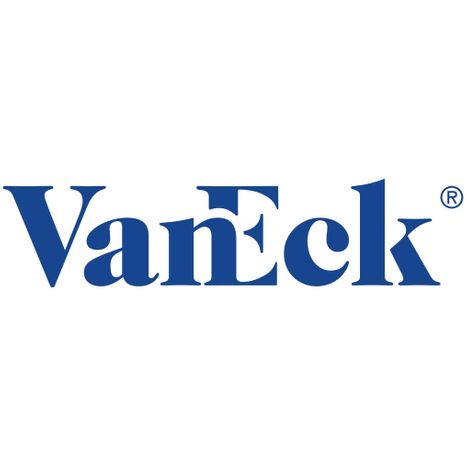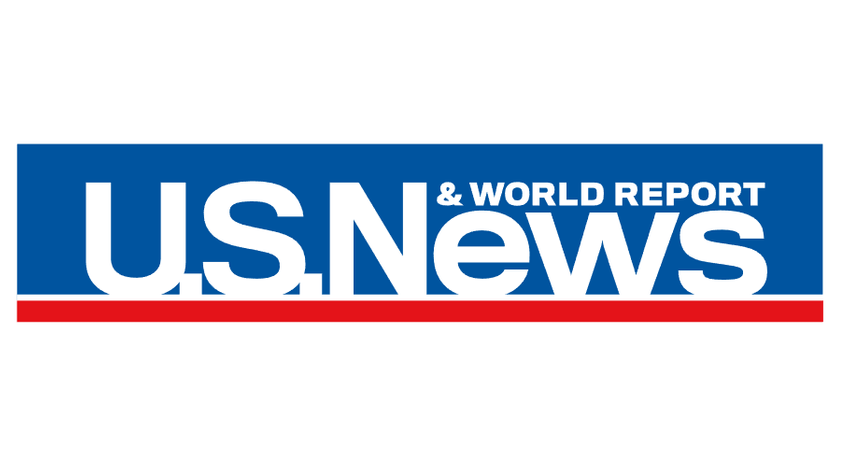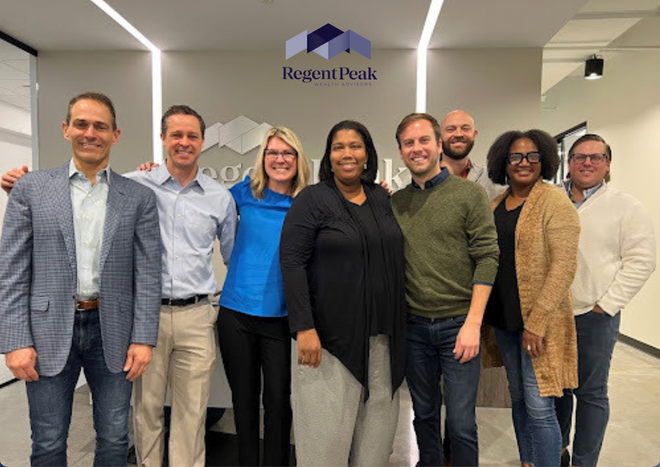Commentary
As part of our fiduciary approach to considering your best interests, we provide regular updates and news items about our firm, as well as information and commentary we deem to be relevant and worth your time. We invite you to contact us about any of these articles and releases. We’re only too happy to answer your questions.
The Pros and Cons of the PE Secondaries Market for Advisory Clients
Wealth Solutions Report
With endowments like Yale and Harvard considering selling some or all of their private equity holdings to the secondaries market for enhanced liquidity, our Founding Principal and Managing Director Craig Robson weighed in on how advisors should be approaching PE secondaries.
Increased turnover in private equity has expanded the opportunity set, and Regent Peak continues to have strong conviction in the role that secondaries can play in an overall portfolio construct.
However, investors should fully understand what they own and why they own it. Craig notes that secondaries generally have different fee structures than public investments and typically may not be used as collateral sources for lending facilities. Advisors also need dedicated resources to diligence and monitor them—and must be prepared to educate clients on both the pros and the tradeoffs as part of a broader allocation strategy.
Read the article HERE
more'Sell in May and Go Away'? Wealth advisors say, maybe not
InvestmentNews
Each spring, the old investing adage “Sell in May and go away” starts making its rounds. But does seasonal market timing actually hold up, and is it worth the risk of stepping out of the market? Our CIO Nathan Hoyt doesn’t think so.
“If you sell in May, what do you buy that outpaces the historical 3 percent annualized returns until October? When October arrives, risk doesn’t magically disappear, even if you are disciplined enough to re-invest,” Hoyt said. “Seasonality trends are easy to spot and thus a tempting trap that investors fall into thinking they can time the market, unlike the rest of us. I wouldn’t ask my clock or my calendar to predict the future.”
Read the article HERE
moreHow Estate Plans Are Changing Under the Trump Administration
The Daily Upside
Estate planning isn’t a “set it and forget it” process – especially in times of political change. With recent tariff news signaling significant policy shifts from the new administration, potential reforms to the Tax Cuts and Jobs Act could be next in line.
In this piece our Founding Principal and Managing Director, Craig Robson, explains why advisors and clients should brace for potential changes to estate tax policy. By spotlighting tools like multigenerational education, scenario planning and tax-smart gifting, Craig encourages advisors to reassess financial plans now and take steps to help safeguard client wealth and legacy.
Read the article HERE
moreBonds, CDs, Annuities? 10 money pros on exactly what 'safe-haven' investments to consider now
MarketWatch
“While there is nothing safe about the stock market, those with long term investment horizons that buy into these types of volatile markets have historically grown their wealth, and despite the reasons for the sell-off feeling quite scary each time, the best investors consistently buy more risk assets in ugly environments.” He adds that “if tariffs truly are more seeds of inflation, 4.4% is unlikely to keep up with rising costs, even if interest rates remain the same. Using more esoteric strategies like structured notes or private investments can provide a portfolio with less volatility if not higher returns, yet the longer time frame and illiquidity of these types of investments should be considered before selection.” -Nathan Hoyt, CIO
Read the article HERE
moreAre REITs back?
InvestmentNews
Is this the end of the Magnificent 7?
InvestmentNews
What Trump's tariffs mean for markets
Reuters
With new tariffs now in effect, our CIO Nathan Hoyt weighed in on how tariffs are simply a policy tool - neither inherently good nor bad, but defined by their intended use. He also breaks down their potential economic and trade impacts:
"Tariffs could be a terrible policy mistake, leading to anti-free trade (if you like that perspective), or it could be necessary economic medicine to bring back manufacturing to the U.S. and negotiate better terms for the U.S. (if you like this one)."
Ultimately, Nathan notes that the true impact of tariffs will only be clear in hindsight - and they shouldn't impact your investment strategy. While tariffs may create short-term noise, long-term investors should stay focused on diversifying across multiple asset classes.
Read the article HERE
more5 harsh realities of investing in crypto
Business Insider
With crypto experiencing recent volatility, our Founding Principal and Managing Director Craig Robson reminds investors that strong performance in 2024 doesn’t mean digital assets won’t have a big draw down or pull back like in 2022. He emphasizes that crypto must be suitable for each investor’s risk tolerance.
“Everyone says that they can handle volatility when times are good. When things aren't good, I call it your pain threshold," Craig said. "Upside volatility is great, but the knife cuts both ways."
Read the article HERE
moreUsing tech to help clients through divorce: Show Me Your Stack
FinancialPlanning
Divorce is a challenging time, both emotionally and financially, but the right guidance can help clients navigate it more smoothly. Our Founding Principal and Managing Director Craig Robson gave Rob Burgess a look into how we leverage advice, education and financial tools to help clients find the best path forward amid divorce.
As Craig explained, we help clients outsource the financial aspects of their life so they can focus on what matters most – their families, careers and personal interests. Through strategic planning technology, we provide the clarity and stability they need to navigate difficult transitions like divorce and work toward the best possible outcome.
Read the article HERE
more
The Fed's 'preferred' measure of inflation is core PCE. Do advisors favor it as well?
Gregg Greenberg
In a recent InvestmentNews article, our Founding Principal and Managing Director Craig Robson explained how the monthly CPI index – minus the “owner’s equivalent rent” (OER) component – offers a directional snapshot of inflation and how investors can historically combat inflation with public equities.
In fact, Craig highlights that from 1945 to 2023, investors who held cash lost purchasing power by 90%, while those who invested in the U.S. stock market with dividends reinvested significantly outpaced inflation.
Read the article HERE
moreAdvisors Want In on Private Credit. Should They?
The Daily Upside
Private credit is on the rise. In this piece, Craig Robson shares that the asset class "is another tool in the toolbelt" that can offer investors diversification beyond traditional bonds or dividend-paying stocks.
While private credit presents compelling opportunities, Craig also notes that investors should stay mindful of potential risks. As more capital flows into private credit, the possibility of underwriting standards could weaken, potentially leading to credit deterioration. “Will we have a scenario where underwriters get a little lackadaisical in their diligence? I hope that won’t be the case – but hope isn’t a strategy, as we all know,” Craig said.
Read the article HERE
moreCraig's Corner - The Gambler
In January our family went to Las Vegas to watch my younger son's hockey team play in a tournament out in the desert - yes, ice hockey is becoming a national sport! For this Atlanta-based group of 17- and 18-year-old young men, it was their first trip to the city known for its entertainment value, especially the gaming industry. Watching their expressions and body language as we toured the casinos between games was worth the price of admission as it was definitely an educational experience. There were multiple mini discussions throughout the weekend between parents and their kids, which included questions such as: "Why is gambling addictive for some people?", "Why don't people stop once they have generated a profit?", "Which games have the best odds of success?", and so on. From a hockey weekend perspective, our boys experienced some difficult odds as two of their five games included a come from behind victory late in the 3rd period as well as an overtime and subsequent shoot-out victory. It was gut-wrenching for the parents! Fortunately, the team wasn't overly distracted as they went undefeated and won the tournament, returning home with the hardware they were seeking, including a team trophy and individual gold medals.
moreWickedly Flawed Investing Ideas
WealthManagement.com
The New Year often brings a wave of bold market predictions and seemingly "can’t-miss" investment ideas. But as our CIO Nathan Hoyt explores in his latest piece for WealthManagement.com many of these trends – whether it’s overconfidence in volatile assets or the sustainability of an 8% withdrawal rate – can be more illusion than reality.
Drawing inspiration from The Wizard of Oz and Wicked, Nathan highlights how investors, much like Dorothy and her companions, must look beyond surface-level narratives and challenge assumptions before making financial decisions. At Regent Peak Wealth Advisors, we believe in disciplined, long-term investing tailored to individual goals – not chasing trends that may lead to an unexpected financial twister.
Read the article HERE
moreIt's Trump 2.0 What Financial Advisors Are Telling Clients to Do Now
Barron's Advisor Planning Strategies - The Big Q
Certain clients have some concerns, and others are super supportive. Most clients are somewhat agnostic to it all. And that’s because we make sure our clients understand that capital markets are generally agnostic to whoever’s in the White House. I like to say that a president gets too much credit when things go well from a capital-markets perspective and too much blame when things don’t go well. We make sure clients understand that their financial plan is their bedrock, and investments are a means to fund those goals. So long as we keep them centered on that, our clients are generally pretty good in terms of managing the day-to-day noise. -Craig Robson, Founding Partner and Managing Director
Read the article HERE
moreCharitable contributions: How to get a tax deduction for your donations
Bankrate
With tax season underway, now is the time for investors to assess their 2024 charitable contributions and to plan ahead for 2025 giving to maximize tax benefits.
Consider strategic giving, including how individuals can:
- Evaluate whether the standard deduction or itemizing contributions provides the greatest tax benefit
- Consolidate donations into a single tax year to surpass the itemization threshold
- Leverage donor-advised funds (DAFs) for immediate tax benefits while maintaining flexibility in charitable giving.
Read the article HERE
moreU.S. Inflation Rates Over Time and the Forecast for 2025
U.S. News & World Report
With the recent release of December’s CPI data, our AWA Nick Fazio provided insights into inflation trends, why both annual and month-over-month figures matter for a fuller picture, as well as how investors should account for inflation in their financial plans:
"As life expectancies continue to increase, you’re going to want to have a financial plan that anticipates the impact of inflation over multiple decades,” said Nick. “It can feel odd to plan on spending amounts that are significantly higher than what you spend today, but it’s imperative to plan on future increases in price levels to be able to live the great life you envision down the road.”
Read the article HERE
moreWealth managers planning to add to ranks in 2025
InvestmentNews
We believe in a smart growth strategy, which allows us to build our team in a manner that aligns with the anticipated needs of the firm, prevents reaching capacity and protects the well-being of our employees.
In line with this strategy, our COO Emily Raymond pointed Gregg Greenberg toward our 2025 expansion plans, where we’re looking to create a business development role and a “hybrid” position that supports our client service associates, associate wealth advisors and planning team.
“You can’t have one without the other to produce quality, efficient, top-notch service to our clients,” Emily noted.
Read the article HERE
more3 Ways to Get Into Crypto If You Haven't Yet
BusinessInsider
"Make sure you know what you own and why you own it."
In a recent conversation our Founding Principal and Managing Director Craig Robson reminds investors of this principle when evaluating new investment opportunities, especially as bitcoin and other cryptocurrencies continue to rise in popularity.
For investors who are looking to diversify with digital assets and determine crypto is a suitable addition to their portfolio, small allocations to crypto ETFs, for example, can help manage risk while gaining exposure to this asset class.
Read the article HERE
moreCharting the Ascent - CIO Insights, Issue 1
As we launch into the first edition of our latest newsletter, “Charting the Ascent,” I’m going to share some knowledge with you, grammar police be damned: Once you know it, you can’t un-know it. The meaning of the phrase “begging the question” is a controversial topic, and I’m one of many who will silently judge you when you use it incorrectly. Miriam Webster has a great article “Beg the Question: It’s not begging at all” (Link below) on the idea.
Most will recognize the phrase to mean “prompting the question” on the heels of a statement or supposition that inspires the need for more information. However, the original phrase comes from a 16th century translation of Aristotle’s “petitio principii,” pointing out a logical fallacy, which is better known as “assuming the conclusion.”
Aristotle’s translated version of “begging the question” is the idea that your argument or thesis is correct on the assumption that the thing you are trying to prove is already correct. Most uses of this version are found in philosophy—a example is “black cats are bad luck and therefore would make a bad pet,” begging the question that black cats are unlucky. So-called mainstream financial “gurus” are constantly guilty of this fallacy, because the future is so uncertain.
more"Advisors contemplate crypto beyond Bitcoin in 2025"
InvestmentNews
With Bitcoin’s recent performance surge and a strong year for digital assets overall, Craig outlined why advisors and investors alike may be more amenable to digital assets in 2025:
- Congress continues to embrace digital assets, creating a more favorable regulatory environment
- Volatile digital assets like Bitcoin and Ethereum offer tax-loss harvesting opportunities for those with direct ownership
- Cold storage solutions reduce the risk of predators accessing and stealing crypto assets
- The use cases for digital assets, such as blockchain-powered internet and digital currency, continue to evolve
Read the article HERE
more"Active ETFs Gain Appeal Across Wealth Management"
ETF.com
Active management is gaining traction within the ETF space, with active ETFs expected to surpass $4 trillion by 2030. Our CIO Nathan Hoyt weighed in on the rising appeal of active ETFs, their benefits for investors and the importance of understanding the underlying investments of these funds.
Read the article HERE
more"Sophisticated Internet Scams Targeting Elderly Clients Are Rampant"
WealthManagement.com
Unfortunately, our clients and their loved ones are not immune to the sophisticated fraud schemes that are so prevalent today, making these conversations a constant reality. Fraud does not discriminate; it targets everyone, regardless of background or financial status. We have witnessed a range of scams, from criminals impersonating government officials or local authorities to fraudulent Bitcoin investment managers, some with heartbreaking results. It is imperative to be proactive about these discussions before it’s too late by taking the appropriate actions.
Read the article HERE
more"Forget mega-money deals, here's how smaller RIAs are growing"
Citywire RIA
Since Regent Peak Wealth Advisors became independent in 2019, we've strategically grown by refining how we serve and connect with our clients. In this article, Craig reflects on how client relocations and connections with centers of influence have fueled our national growth. We've developed innovative services - like consulting on illiquid assets and preparing our business-owner clients for tax-efficient sales - allowing us to go beyond traditional wealth management offerings.
Read the article HERE
more"Listings down and election over, advisors see opportunity in VC funds"
InvestmentNews
As IPOs and private company exits are increasing, our Founding Principal and Managing Director Craig Robson recently spoke with Gregg Greenberg on why we view venture capital as a favorable asset class heading into 2025.
The Regent Peak Wealth Advisors investment committee recommends venture capital as a subset of our private investment allocation, which also includes private equity, digital assets, private credit, commodities, and private real estate, as is deemed suitable for your portfolio.
Read the article HERE
more"Hot Minute" with Craig Robson
Real Assets Adviser
Our Founding Principal and Managing Director joined Ed O’Farrell for a “Hot Minute” to discuss how offering clients interesting alternative investment opportunities can foster a sense of excitement and engagement, our founding story and more on Craig’s background, including his alma mater, first job and the book that’s shaped his investing philosophy.
Check out the podcast HERE
moreCraig's Corner - Live Like You Were Dying
It was an Autumn Friday evening, approximately one year ago, that I received a text message from a good friend stating he needed to speak with me. I was in Tampa attending my younger son's hockey tournament and told him I would call him within an hour. I suspected something was wrong, yet I kept a positive mindset prior to our conversation. My suspicions were unfortunately correct, as he later told me he was diagnosed with stage 4 cancer and the prognosis was not good – in May of this year he passed away to God’s Kingdom at the age of 63. My friend lived a healthy lifestyle, he had a passion for life, he was a successful entrepreneur, and was a professional mentor who helped encourage me to start my own firm. He taught me to take both professional and personal risks, to live my life to the fullest - acknowledging that is a personal decision for each of us. He will be missed by so many, including yours truly.
Excluding that “stopped me in my tracks” conversation last October, I look forward to the fall season as historically the markets perform best during this period. Since 1950, the S&P 500 has averaged over 4% in the final quarter and is up 80% of the time [1]. In a previous Craig's Corner, I have provided various catalysts which may be direct contributors to these positive results, yet please recall these are not guaranteed returns, (otherwise the proverbial Financial Santa Clause would be coming early every year), so be balanced and consistent in your investing timeframes.
more"Bitcoin surge has advisors once again answering questions"
InvestmentNews
Bitcoin’s recent surge has renewed investors' interest in cryptocurrency. However, as our CIO Nathan Hoyt shared with InvestmentNews, this performance likely stems from the U.S. government’s continued stance on cutting interest rates amid rising debt and deficits, fueling inflation and currency devaluation.
Read the article HERE
more"Play Defense: Simple Advice for Clients to Combat Fraud"
Wealth Solutions Report
The threat of financial fraud is becoming a bigger threat as we enter an ever-evolving digital world. That leaves a looming question: how can advisors help combat this? In his piece, Elias offers fraud prevention strategies such as complex passwords, enabling dual-factor authentication, freezing credit and more. These are proactive measures that advisors can provide to their clients annually to reduce the risk of cybercriminal activity.
Read the article HERE
more
"Wealth managers discuss their hiring needs"
InvestmentNews
Craig Robson, Founding Principal and Managing Director at Regent Peak Wealth Advisors, notes that while this Friday’s September jobs report won’t specifically illuminate the wealth management industry, the financial advisory business continues to add professionals across various roles.
“Each firm’s respective growth and resource strategy will drive these new employment opportunities,” said Robson. “Within Regent Peak Wealth Advisors, we maintain a smart growth strategy which translates to hiring new talent before we are capacity constrained. Our next hires will be within the business development, advisory, or client services roles as these will allow us to continue being ‘laser-focused’ on growth initiatives.”
Read the article HERE
more"How AI is Changing Financial Advisors' Jobs"
Financial Planning
The promise of AI is to help advisors improve efficiency and automate routine tasks, but what does that mean for advisors?
In this piece Craig delves in to his thoughts: AI taking his job any time soon. He believes that the value of the human element cannot be replaced. Clients consistently seek advisors who offer competencies, knowledge, experience, personality, relational connections, willingness to serve and strong ethics–qualities that AI cannot fully replicate. While AI tools can be valuable in an advisor’s toolbox, the human connection remains indispensable.
Read the article HERE
more"September is historically a scary month for stocks. Why not "market time" it?"
InvestmentNews
Nathan Hoyt, Chief Investment Officer at Regent Peak Wealth Advisors, does not look to seasonality as a core investment thesis because he is no market timer. “In essence, market timing is based on the hope that you are smarter than the market or that you are convinced the future will behave like the past. I prefer an investment strategy that I can stick to regardless of the calendar, rather than one that depends on the calendar,” said Hoyt.
Read the article HERE
more"Rate cuts loom, but this savings account still offers 6.25% - plus 9 more of the highest-APY savings accounts in September 2024"
MarketWatch
Newer banks, who are trying to build up a strong base of account holders, are willing to pay higher rates to entice them to move their accounts from other lower paying competitors,” says Manning. However, risk of default in these banks could be slightly higher, so with that in mind it is advisable to keep account balances at or below your FDIC protection limits.
Read the article HERE
more"Should Investors Brace for More Volatility? Here's Where the Stock Market Could Be Headed"
Money Magazine
The market sell-off in early August was a stark reminder that pullbacks are not uncommon. Our Founding Principal and Managing Director, Craig Robson, CFP®, CIMA®, CDFA® believes that instead of making rash moves, investors should use those moments to reevaluate the risks in their portfolio and take stock of their liquidity needs to better prepare for future volatility.
Read the article HERE
more
"Stock Market Today: Dow, S&P 500 and Nasdaq close higher Friday, score best week since November"
MarketWatch
This week we have seen a notable rebound in U.S. stocks, with the Dow, S&P 500, and Nasdaq posting their best gains since November. While this uptick is promising, our Chief Investment Officer, Nathan Hoyt, CFP®, emphasizes the importance of staying vigilant.
At Regent Peak Wealth Advisors, we continue to navigate these dynamics with a balanced approach, focusing on long-term strategies amid short-term fluctuations. We remain committed to guiding our clients through these evolving market conditions with informed insights and strategic planning.
Read the article HERE
more"How Advisors Serving Business Owners Can Drive Deeper Client Relationships"
Wealth Solutions Report
Many advisors work with clients who own businesses, but not all are equipped to truly serve this niche. At Regent Peak Wealth Advisors, we understand that guiding business owners through their financial journey requires a deep understanding of their unique challenges.
Our Founding Principal and Managing Director, Craig Robson, CFP®, CIMA®, CDFA®, offers a distinct perspective as both an advisor and a business owner. This dual experience allows him to provide tailored advice, become an integral part of his clients' trusted advisory circles, and enhance the overall value and experience of their businesses.
To learn more about how Craig has shaped Regent Peak to support business owners, check out the article below.
Read the article HERE
more"More advisors offer advice for keeping cool in a market storm"
Investment News
August 5, 2024 proved to be a hectic day for financial advisors and clients due to the market sell-off.
However, our founding principal and managing director, Craig-Robson, CFP®, CIMA®, CDFA®, shared his most effective strategy for calming anxious clients: reminding them that we designed their financial plans and corresponding allocations to account for periods of downside volatility. Craig noted that “while this isn’t enjoyable, it is expected periodically,” and emphasized that it is best to avoid making significant changes to asset allocation amid market volatility.
Read the article HERE
moreCraig's Corner - What Could Possibly Go Wrong
In previously coaching my son's ice hockey teams, after drawing up a new play and visually explaining it to the players, I would ask if they had any questions before we installed it into our practice plan. Once any remaining questions were answered, and before they set out to go practice it live, I would finish by asking the kids, "What could possibly go wrong?" This latter question was by design, partially to provide some levity yet also to get them thinking ahead, because if mistakes were made, I wanted them to consider in advance about how they would adjust in the moment, as hockey is a game of speed predicated on time and space.
Earlier this summer a close friend of mine and I decided to hike a super challenging mountain in the state of Washington. For me personally, this hike would be in my top five in the difficulty category, and I was excited to check it off my list. On our two- and half-hour drive from Seattle to The Enchantments, we discussed the severity of the upcoming hike and I joked with my friend by saying, "What could possibly go wrong?" Little did we know that later in the afternoon we would find out! Our hike up the mountain was uneventful, yet longer than we had estimated as it was unseasonably hot that day and the scree covering the final 2,000 feet of elevation (Aasgard Pass) made our hike much slower than we had planned. We hit the summit by 4:00 PM (our initial estimate was 1:00 PM), and acknowledging we were behind schedule, we did not stay long admiring the views. With a big afternoon ahead of us heading down the mountain, we started our descent as we wanted to get to our car before nightfall set in. Approximately 1/3rd of the way down (we were about 5,500 feet from the basecamp/parking lot) we came upon two young ladies, one of which was lying on the ground and in obvious pain. Her friend confirmed she was having severe leg cramps and we suspected she was extremely dehydrated. After diagnosing the situation (they had minimal water, food, layers of clothing, and the one hiker was barely speaking and could not walk) it became obvious that we would have to help them get off the mountain or they would be stranded overnight (dehydration, starvation, and bears were all scenarios they would possibly encounter). Pulling from our previous experiences, as well as the resources we had packed, we devised a few different plans to get her and her friend off the mountain. Ultimately, we made contact with the local park rangers via our Garmin SOS device (if you are a hiker and don’t have one I strongly encourage you to purchase it). and Approximately 3 hours later park rangers arrived via a helicopter to remove them in a stretcher and helicopter them off the mountain directly to the local hospital. Once the helicopter departed, reality sunk in - we were left alone and still had to climb 5,500 feet down the mountain in the dark using headlamps as our only light source. We made it back to Seattle twelve hours later than expected, grateful for both a hot shower and shelter.
moreNew Heights | Mid-Year 2024
Here we are, at the mid point of 2024! At this juncture, your Regent Peak team reflects on significant internal processes and expansions of our partnerships to enhance our business, allowing us to maintain our steadfast client-centric approach. We continue to hear from you on what's important, and while that can differ across the clients we serve, one thing remains at its core: our ability to engage with you in personalized ways across the customized service offering we provide our families.
We experienced a change in many of our tech partners in recent months, which allowed us to shop the market and find the most suitable option for us to perform at a peak level. While you, the families we serve, are not directly impacted by such changes, it internally allows our team to access enhanced platforms, gaining efficiencies so we can keep the quality of our client service at the forefront.
In year five, we continue to be proud of our successes acknowledging there's always room for growth. We consistently look for ways to be better, expand our way of thinking, all while having fun and keeping an open mind to the creative solutions that are evolving. Read below for details on our latest activities and remember that we have your best interest in mind.
more"Serena Williams once tried to deposit a $1 million check at her bank’s drive-through. Here’s why you can’t do that."
MarketWatch
When it comes to depositing a windfall of cash, it’s often more complicated than simply going to the bank..
Our Chief Financial Officer and wealth advisor, Kevin Manning, CFP®, says that policies regarding how to handle large sums vary from institution to institution, but it is best to contact your bank ahead of the deposit. This is not only best for the individual, but will also help in building a relationship with your bank.
Read more on Kevin’s thoughts regarding depositing large sums of money in a recent MarketWatch article.
Read the article HERE
more"Forget the returns. Advisors look to private markets for diversification"
Financial Planning
A Blackstone study found that 90% of surveyed advisors had helped their clients into private markets, with 70% of the respondents saying their clients had allocations of 5% or more.
Our Founding Principal and Managing Director, Craig Robson, CFP®, CIMA®, CDFA®, spoke with Dan Shaw about this survey and why Regent Peak allocates 10-30% of their client portfolios to private markets for diversification and downside protection, rather than seeking high returns.
Read the recent Financial Planning article for Craig’s full take on the importance of diversification and the careful selection of private market investments for long-term stability.
more"How many stocks should you own?"
Bankrate
In Mallika Mitra's Bankrate article, our associate wealth advisor, Nick Fazio, CFA, CPA, emphasized the importance of avoiding overly concentrated portfolios to mitigate volatility and enhance long-term investment stability.
When discussing the volume of stocks an investor should own, he focused on the value of diversification sharing: “If you had 30 stocks and they happen to be in one specific sector, you’d still be way less diversified than if you only had 10 stocks but they were across a bunch of sectors. You want to make sure that in the effort to diversify, you are picking stocks that shouldn’t generally be trading alongside each other.”
Read on for Nick’s thoughts and strategies when it comes to buying stocks.
more"Advisors name the most overlooked financial issues during divorce proceedings"
Investment News
In an InvestmentNews article, our Founding Principal and Managing Director, Craig Robson, CFP®, CIMA®, CDFA® shares invaluable insights on the often-overlooked tax implications financial advisors must consider when assisting couples through a divorce.
From retirement plans and Qualified Domestic Relations Orders (QDRO) to the tax treatment of child and spousal support, Craig emphasizes the importance of understanding these critical components to avoid unnecessary penalties and liabilities down the road.
Read the full article for Craig’s expert advice on navigating the complexities of divorce-related finances to ensure the best outcome for all parties involved.
Read the article HERE
more"Three Common Financial Blind Spots and How to Navigate Them"
Kiplinger
With 70% of families losing their wealth by the next generation and 90% by the third, it is crucial for advisors to work with clients on preserving financial stability. In a piece for Kiplinger, our Chief Investment Officer Nathan Hoyt, CFP® highlights three key blind spots that investors need to address to establish and maintain multigenerational wealth:
“While cautionary tales of lavish and wasteful spending certainly exist, the reality is that wealth erosion often stems from the unexpected. To preserve their financial stability, investors should be focused on several key considerations: managing tax inefficiency, bridging insurance gaps and envisioning multiple market outcomes,” notes Hoyt.
Learn more about how each of these strategies can be leveraged to protect and preserve investors' wealth.
Read the article HERE
more"Private market investments are not a crowded trade despite all the attention"
Investment News
Founding Principal and Managing Director, Craig Robson, CFP®, CIMA®, CDFA® sat down with Gregg Greenberg to discuss the strategic advantages of incorporating private markets into investment portfolios.
He shared, “In our experience, having a multi-asset class approach, which includes private investments, optimizes returns and compresses volatility over the long-term.”
Watch the full interview on InvestmentNews to learn more on how Regent Peak Wealth Advisors is leveraging private market investments to enhance portfolio performance.
more"Juggling work-life balance during vacation season"
Investment News
With summer just around the corner, many of us are gearing up to take time off to relax, travel, and spend quality moments with family and friends. In an InvestmentNews article, our Founding Principal and Managing Director, Craig Robson, CFP®, CIMA®, CDFA® shares how we navigate work-life balance during vacation season at Regent Peak.
With an unlimited PTO policy and flexible work arrangements, we take a collaborative approach to ensure our employees can take well deserved time off. This strategy allows us to maintain smooth operations while an employee is on PTO, as our team members work together to cover responsibilities and maintain continuity at all times.
Read the article HERE
moreCraig's Corner - Getting Started
Earlier this year our older son was accepted into a 7-month internship with a scuba diving company in Key Largo, FL. Upon completion of the program, graduates will have obtained multiple diving accreditations/licenses which will subsequently provide them an opportunity to teach anywhere in the world - I asked if they were accepting applications from 54-year-olds! In addition, graduates will have secured navigational licenses so they may also drive larger vessels in the waters. The learning program runs 6 days a week starting at 6:00 AM and many days into the late evenings. They receive minimal compensation yet obtain numerous skills which are immediately transferable into the workforce upon completion. He and our family reviewed the benefits and costs of the program, and his only real hesitation before accepting the position was that he wasn't entirely sure if this was the career path he wanted to pursue professionally as an adult. I reminded him that his father studied engineering in college, started his professional career with an IT consulting firm, and now is a business owner who leads a wealth advisory firm. I told him it was more important to start somewhere and gain experiential skills rather than trying to figure out what you think you may want to do in your professional life. My comments must have resonated with him because in mid-April he and I flew down to Florida so I could drop him off to meet his fellow interns and employer as he was starting his internship.
more"Do Warren Buffett’s words still carry weight on Wall Street?"
Investment News
At Regent Peak, we follow a rules and process-based approach, and our investment portfolios are tailored to each client's unique financial situation and long-term objectives. And while we appreciate Warren Buffett and other investing luminaries, we're not relying on their insights to inform our investing decisions.
In a recent InvestmentNews article, our CIO Nathan Hoyt, CFP® discussed how our investment decisions are not influenced by the whims of financial gurus or influencers, no matter how memorable their quotes may be.
Read the article HERE
moreRegent Peak Wealth Advisors Doubles Assets Under Management Five Years After Becoming Independent RIA
BusinessWire
Tomorrow, Regent Peak Wealth Advisors celebrates our five year anniversary. To honor this, we are excited to highlight key milestones that we have achieved since 2019, as well as the strategic expansion of our investment platform to better meet our clients' unique wealth objectives.
Our founding principal and managing director Craig Robson, CFP®, CIMA®, CDFA® shared: “The talented, hard-working team that we’ve built at Regent Peak enjoys nothing more than solving complex challenges for our clients, helping them achieve their life goals with truly objective advice. I couldn’t be prouder of the culture and firm that we’ve built.”
Read the article HERE
more"Preserving Multi-Generational Wealth"
Wealth Solutions Report
When wealth is passed on to the next generation, 70% of high-net-worth families experience a significant loss of assets. To address this issue, our founding principal and managing director, Craig Robson, CFP®, CIMA®, CDFA®, details the importance of interfamilial dialogue and clear communication in order to preserve wealth across generations in an article for Wealth Solutions Report.
Craig highlights how a family's trusted family advisor can play a pivotal role by initiating and guiding conversations with the younger generation about estate management, outlining financial responsibilities to heirs, and involving the family's network of experts for more comprehensive estate discussions.
Read the article HERE
more"What’s in an acronym? Advisors name their favorite designations"
Investment News
In our work with clients, it's important that we're truly experts in the fields of financial planning, investment management and beyond. That's why our founding principal and managing director Craig Robson, CFP®, CIMA®, CDFA® says the CFP designation is the most beneficial for an advisor to have as it covers a comprehensive range of consulting topics within a client’s overall financial plan design. From there, advisors can get more tactical and specialized in their focus areas for clients.
Read the article HERE
more"Advisors increasing allocations as small-caps rally"
InvestmentNews
As small-cap stocks gain momentum in client portfolios, our chief investment officer Nathan Hoyt, CFP® explains to Gregg Greenberg the market conditions that drive the growth in value of these stocks.
Nathan foresees a decrease in interest rates during the latter half of the year, noting that historically, such a falling rate environment has been beneficial for both small-cap growth and value companies.
Read the article HERE
more"Regent Peak’s Craig Robson on the Contrarian Strategy that Led to Rapid Organic Growth"
RIA Edge Podcast / WealthManagement.com
At Regent Peak Wealth Advisors, we focus on all aspects of our clients lives to create smart solutions that go beyond investment management. As an independent firm, we have flexibility to tailor our services to better meet the evolving needs of the multi-generational families, business owners, entrepreneurs, corporate executives and wealth creators that we serve.
Our Founding Principal and Managing Director Craig Robson, CFP®, CIMA®, CDFA® spoke with David Armstrong on the RIA Edge (Part of Wealth Management EDGE) podcast to discuss the successful strategies that have fueled our growth over the last five years. He delves into our strong focus on client satisfaction, how and why we involve all family members in the financial decision-making process, and the industry relationships we leverage to provide the best possible service.
more"Niche of the Week: Entrepreneurs and career changers"
Citywire RIA
At Regent Peak Wealth Advisors, we are dedicated to serving corporate executives and business owners as they navigate career transitions and challenges, as well as understanding the financial implications involved.
Our founder and managing director Craig Robson, CFP®, CIMA®, CDFA® spoke with Reagan Darrah about our approach to supporting clients in achieving their professional ambitions while modeling their financial plans to reflect these aspirations.
Read the article HERE
more"Nathan Hoyt Takes on the 4% Rule"
ETF.com
Our chief investment officer, Nathan Hoyt, CFP®, is dedicated to building simple yet integrated strategies to help individuals and families achieve their financial objectives, particularly during times of transition. A strong advocate for taking a tailored approach to advice, he offered insight on the 4% withdrawal rate in retirement with Jeff Benjamin of ETF.com.
Read the article HERE
more"Three Keys To Multigenerational Asset Transfer"
Wealth Solutions Report
“Historically, advisors have approached multigenerational planning by preparing assets for the family. However, to achieve true success, advisors should flip their thinking and prepare the family for the assets."
Craig Robson, CFP®, CIMA®, CDFA®, Founding Principal and Managing Director of Regent Peak Wealth Advisors, highlights three tactics advisors can implement to prepare families for wealth transfers while maintaining their peace of mind.
Read the article HERE
more"Advisors Lean Into Alternative Investments"
ETF.com
With public equities reaching expensive valuations, our CIO Nathan Hoyt, CFP® outlines why now could be an ideal time to allocate to private markets.
Read the article HERE
more"How to Amend a Tax Return: How and When to File Form 1040-X"
Buy Side from WSJ
Ahead of tax season Nick Fazio, CFA, CPA, Associate Wealth Advisor at Regent Peak Wealth Advisors, advises clients to diligently review their tax documents to avoid filing an amended return. In a recent discussion with Aly J. Yale, Nick explains that "mistakes can come from many sources, but often arise from documents that either arrive late or the taxpayer forgets to expect."
Read the article HERE
moreProviding Context for Your Financial Life
Nick Fazio, CFA, CPA
Last weekend, I came down to the living room to join my wife, who had already started watching The Proposal. Having joined about an hour into the movie, I naturally had some questions.
Why is Sandra Bullock joining Ryan Reynolds’ family in Alaska?
Why are they faking being engaged?
What’s the beef between Ryan Reynolds and his dad?
Obviously, my wife was thrilled.
Context is important. As rom-coms always allude to, people do crazy things when they’re in love. And while flying to Alaska to fake an engagement to your assistant in front of his family in order to avoid deportation back to Canada might not be the optimal solution, context at least makes the decision understandable.
In wealth management, your financial plan provides context, and this context is the guiding principle upon which all subsequent decisions should be made. Context is critical because financial planning is often less about absolutes and more about trade-offs between competing pros and cons.
Let’s use investments, for example. How exactly should someone invest? Should you put all of your money in stocks, or maybe the traditional 60/40 portfolio? Should you consider investing in private markets? What about the investments that financial news is fixated on, like cryptocurrency or NVIDIA? The answer is going to depend on several factors related to the client because none of these strategies is always the right answer.
more"New Year's Resolutions Wealth Advisors Wish Clients Would Make"
BARRON'S
As we settle into the new year, our founding principal and managing director Craig Robson, CFP®, CIMA®, CDFA® sits down with Steve Garmhausen to discuss how he recommends advisors brainstorm resolutions and financial goals with their clients.
At Regent Peak Wealth Advisors, we factor in our clients’ aspirations, like building their dream home or starting a business, into their overarching plan and help them evaluate the steps necessary to achieve them.
Read the article HERE
moreCraig's Corner - Open Your Windows
As a kid growing up one of my favorite TV shows to watch was Wide World of Sports. Most of us who grew up watching the show recall the opening monologue, “Spanning the globe to bring you the constant variety of sport/The thrill of victory and the agony of defeat/The human drama of athletic competition/This is ABC’s Wide World of Sports." As I look back, I now realize how much of an impact this show had on me as it introduced me to so many different sports which I had not seen or experienced previously such as martial arts, speed skating, downhill slalom skiing, cliff diving, surfing, sumo wrestling and so many others. This provided the catalyst for me to try different sports rather than just the traditional ones I had played growing up. Over time I came to realize these new sports provided many complementary skills and trained new muscle groups which ironically made me better in the athletic programs I enjoyed playing the most.
At the end of October 2023, investors felt like they were also experiencing the agony of defeat as they had just witnessed three consecutive months of negative returns (Aug -1.77%, Sept -4.87%, Oct -2.2%) [1], yet by late December the capital markets were in a more festive mood and returned 8.92% in November and another 5.23% through December 27, 2023 [2]. As a self-described "stats geek", these positive returns at year-end were not very surprising to me as historically the fourth quarter has been the best quarter for equities over the last one hundred years [3]. To add to the positive momentum, in the year leading up to the last twenty presidential elections since 1944, the S&P 500 has been positive 18 of 20 times for an average of 9% [4]. What is it about the last three months of the year, as well as presidential election years, which provides such capital markets euphoria? From a less technical point of view, a few catalysts typically include:
moreShould I Sell My Home?
Nick Fazio, CFA, CPA
With fall fully in swing and football tailgates quickly making way for holiday parties, chances are, the number one conversation piece at your next social gathering: the housing market. Call it a sign of the times, but it appears that America’s favorite current form of window shopping – and source of neighborhood gossip – is Zillow ®.
Home prices have shot through the roof since the summer of 2020 [1], and despite mortgage rates now sitting at the highest levels they’ve been since 2000 [2], prices have barely budged. While much has been written about difficulties for first time homebuyers in this market environment, existing homeowners also face a challenging set of concerns:
- Should I lock in the gains on my house before the market turns?
- Should I take this opportunity to downsize?
- Should I put off moving? I can’t give up my 3% mortgage.
These are valid concerns, and attempting to time the real estate market can be just as perilous as timing the financial markets. However, in what may be unexpected advice from a wealth management firm, it’s important to not reach conclusions about your home solely from an investment lens. Your house may happen to be one of your largest investments, but it’s also your home. It’s the setting for many of life’s greatest moments. It’s where your daughter learned to ride a bike. It’s where the backyard hosts the family’s annual Thanksgiving game of two-hand-touch. It’s where your dog eagerly awaits your arrival home from work each day. Call it memories or nostalgia, but these things hold value – even if they have not been incorporated into your Zestimate® .
moreMultigenerational Wealth Management
Here’s a shocking statistic: Approximately 70% of transferred wealth is lost by the second generation and 90% by the third generation [1].
Some of the reasons why these current trends exist include: 1) the rising generation doesn’t currently have an existing relationship with an advisory firm, 2) the wealth management industry has primarily focused on preparing the assets for the family and neglected to prepare the family for the assets, and 3) a breakdown in communication between family members.
Conversations within families about managing wealth can be complicated and nuanced. Think about how many different personalities, capabilities, interests, motivations that can exist within an immediate family unit, let alone in the multi-generational structure.
Just as parents might recognize they need to nurture their children differently because of their personalities, perspectives and tendencies, family leaders may need to approach conversations about long-term family wealth management differently.
At Regent Peak Wealth Advisors, we believe that there is a short-list of considerations that should be made about how family leaders would like to establish as guidelines for how the family manages wealth over time, and then there are also strategies to employ for communicating those guidelines to different members of a family.
moreAsset Location Should Go Hand in Hand with Asset Allocation
Last year Regent Peak Wealth Advisors shared a video from our Founding Principal and Managing Director, Craig Robson, CFP®, CIMA®, CDFA® that explained the difference between asset location and asset allocation. This multifaceted approach allows for tax efficiencies and diversification.
Asset Location: allows for strategic tax optimization by placing different types of investments in the most tax-efficient accounts (e.g., taxable, tax-deferred, or tax-free) within your portfolio.
Asset Allocation: involves a broader investment strategy by determining a mix of various asset classes within your portfolio (e.g., stocks, bonds, real estate, alternative investments, and cash, amongst other specialty funds). The idea here is to balance risk and reward.
As with the creation and ongoing management of anyone’s portfolio, it’s important to engage your advisory team to discuss your financial goals and assess your risk tolerance. Pairing those together to ensure your timeline to achieve your goals aligns with your objectives, and your portfolio paints a picture of your path to get there. It’s not a set and forget, its ongoing assessment and reevaluation.
Contact Regent Peak today to discuss whether your assets are strategically located as well as allocated. By implementing both, you can unlock greater potential of your wealth management strategy and work toward achieving your financial goals with confidence. We are your co-pilot. We make it happen.
moreTechnology in Wealth Management
Nick Fazio, CFA, CPA
I recently re-watched Apollo 13, the classic movie about the ill-fated 1970 mission to the moon and the teamwork required by Mission Control to bring the crew safely back to Earth. In one scene, Tom Hanks’s character needs Houston to verify a calculation because the command module’s computer has stopped working. To ensure accuracy, the entire front row of mission controllers re-calculates the equation with the appropriate technology of the day – slide rules.
Flash forward to today, NASA conducts missions with technology that is leaps and bounds ahead of the tools used in the Apollo missions. For reference, the Apple Watch 6 has one million times the processing power of the computer used in the Apollo command module [1]. NASA using more advanced technology does not make space exploration any less important. Rather, it allows astronauts to focus more of their time on the high-value items – the scientific experiments and discoveries performed in space – while allowing technology to take more of a lead on the operational aspects of spaceflight.
While nowhere near as exhilarating as rocket launches and space exploration, the wealth management industry has also undergone tremendous technological improvements over the past several decades. Following last year’s introduction of ChatGPT, much has been written about artificial intelligence and the impending “doom” it will cause for many industries, wealth management included. It remains to be seen what the future holds, but we continue to view technology as an indispensable tool, not the entire solution.
moreCraig's Corner - An Inflection Point
To escape the summer heat index in Atlanta, I typically schedule time with friends to embark on some form of outdoor excursion, which historically has included scuba diving, deep water fishing in Alaska, and destination hikes. Last month I flew to Calgary to join some friends to hike Mt. Temple in Lake Louise, Banff National Park. Mount Temple is a prominent triangular-shaped peak capped with ice and snow that towers above the village of Lake Louise. At 11,636', Temple is the highest peak in the Banff Region, but is also one of the highest peaks in the Canadian Rockies. For those of you who are looking for an adventurous and challenging hike, as well as some time outdoors in the wilderness, I encourage you to add this one to your bucket list.
The summer's equity index returns may also be described as adventurous and challenging. With the S&P 500, Dow 30 and Nasdaq 100 down 1.63%, 2.04% and 1.48% respectively [1], and treasury yields at their highest levels since the 2008 global financial crisis [2], perhaps the markets were taking a pause from what so far has been an excellent year for equities.
Not to be outdone, the August employment report released by the Bureau of Labor Statistics (BLS) was also concerning as the number of unemployed persons increased by 514,000 to 6.4 million [3]. In addition, the BLS report also cumulatively revised downward by 355,000 the YTD jobs created in both the private sector and government [4]. This was the 7th consecutive month of negative revisions, the only other timeframe with a negative revisions streak this long since revisions data has been tracked was in 20084. With jobs creation decelerating, will central banks deliver a “soft landing” later this year or in early 2024, or will we embark on a more definitive economic recession like the one we experienced starting in the back half of 2008?
moreReal Estate as a Component of Your Portfolio
Nick Fazio, CFA, CPA
The housing boom of the past several years combined with inflationary fears has created a renewed interest in real estate investing. People may forget to discuss their real estate holdings with their financial advisor, usually under the belief that real estate should be viewed as separate from their investment portfolio. However, ownership in real estate is an investment just like stocks and bonds, and there are considerable planning opportunities that are unique to real estate holdings.
When viewed in the context of an overall investment portfolio, real estate can offer several key benefits:
Current income – Income has been the primary source of investment return in real estate
Capital appreciation – While secondary to income, real estate has investors also look for capital appreciation over time, and any realized price increase adds to the investor’s total return
Inflation Hedge – Real estate valuations tend to hold up well in inflationary periods relative to other asset classes
Volatility Reduction – Real estate properties are typically not traded on liquid public markets. Because of less frequent updates in valuation, many investors feel more at ease when invested in certain types of real estate where they cannot see the daily fluctuations in price like they can in the stock market.
more
Five Tips To Get Started With A Career In Wealth Management
As your younger children move through middle and high school, guidance counselors and career advisors might suggest that children with a comparative strength in math, data and computing look into careers in “finance” or “economics”. Sometimes those recommendations can feel vast and too broadly focused to understand what paths your children should take with regard to course selection as well as extra-curricular activities. One option within those categories is private wealth management.
Certainly within wealth management there is a range of specialities or types of organizations that provide wealth management services. But first, below are a few ideas for testing the waters to determine whether your child might enjoy pursuing a career within this aspect of financial advisory.
There are a number of different courses your child can try. Accounting, Banking and Finance, Computer Applications, Economics, and Probability and Statistics are the most relevant high school level courses they should try.
Get involved in an investing club to become familiar with the markets and follow financial news. An investing club is a non-threatening way to come to understand how the markets work, interplay with one another and, and some of the basic fundamentals of investing. As parents, try to share news articles from sources like CNBC, Bloomberg Business News or the Financial Times. Conversations in the club or at home relating to the long-term nature of investing and saving are very important, as is becoming familiar with the terminology or investment lexicon.
more
New Heights | Mid-Year 2023
We're halfway through the year already?! Time has flown for us as we have focused on strengthening relationships with clients and partners - an effort that we thoroughly enjoy and value. Whether you've worked with us for decades, or you are a recent member to the Regent Peak family, our commitment to you does not differ. Just as we work to establish and adhere to a plan for our clients portfolios, in tandem with tax and estate professionals, we also evaluate our own plan, the business model we set forth and the strategic initiatives that drive us forward. It's at this time of the year that we take stock in how that plan has evolved and its trajectory for the remainder of the year. As you know, any good plan requires TLC, and we're working right along side of you in this important process.
Below you'll find some exciting news from your Regent Peak team and other updates we're pleased to share with you as we wrap up our summer season.
moreTop Five Financial Management Concerns of Small Business Owners
Nick Fazio, CFA, CPA
Small business owners face a unique set of challenges due in part to the interconnected nature of their personal and professional finances. Here are five common financial management concerns that small business owners face:
1. Raising Capital
Small businesses are often capital intensive, especially in the early years of ownership. This can be a daunting time in the life of a business, and owners are often more concerned with securing any capital available than strategizing how to obtain the right capital. While we’ve all heard underdog stories of entrepreneurs taking on credit card debt to successfully launch their business, determining the optimal solution involves an analysis of the owner’s current assets, liabilities, and potential sources of financing.
2. Business Lifecycle Planning
New business owners are faced with many decisions surrounding the business.
Which legal entity do we choose to organize as?
Is our capital structure the correct mix of debt, the owner’s equity, and any outside equity?
How should I structure retirement plans and compensation for me and my employees?
more
What is a Qualified Small Business Stock?
The Qualified Small Business Stock (QSBS) Tax Exemption is one of the most impactful yet least understood tax exemptions for business owners. It comes from Section 1202 of the Internal Revenue Code, which states that any Qualified Small Business shareholder can sell their qualified stock, aka ownership in the company, and will be exempt from capital gains on that stock, up to the greater of $10 million or 10x the initial investment.
So, how do you know if your business is considered a “Qualified Small Business?” At a high level the criteria is focused on the structure, size, and purpose of the business. The business needs to be organized as a C corporation domiciled in the United States, and the company must operate in a qualifying industry. To quantify which “small” businesses can benefit, the company’s gross assets must not exceed $50 million at any time before and immediately after the issuance of the stock. Finally, at least 80% of its assets must directly support the business’s operations.
The business owner’s investment itself must also meet certain criteria to receive the preferential tax treatment. The investment must be in the form of common stock, as opposed to stock options, convertible debt, and other types of beneficial interest. The stock must have been purchased at issuance directly from the company, and the investor must have provided money, property, or service in exchange for the shares. Additionally, the investor must be a person, and the shares must be held for at least five years.
moreCraig's Corner - Keeping It Simple
This Spring our family traveled to Europe. This trip exceeded our expectations in so many ways, my personal favorite sites were the Winston Churchill Museum and the Normandy American Cemetery. Walking through both, I gained a greater appreciation for the dedication, courage, and unwavering commitment the Allied forces had in defeating the Nazis. Through all the chaos, uncertainty, confusion, and destruction, a simple mandate of victory at all costs allowed Allied leaders to achieve their stated objective.
From a capital markets perspective, 2022 may also have been described as chaotic and destructive. With a bear market (S&P 500) decline of 25% between 1/3/22 and 10/12/221, it might have been difficult to recall the benefits of investing. Yet fast forward to June 16, 2023, and we are experiencing another bull rally2 (generally defined as 20% or greater increase preceded by a 20% or greater decline) with the S&P 500 up 24% since Oct 12, 20223. Historically the average bull market lasts 1011 days and has lasted 3.5 times longer than the average bear market (286 days)4. Bull markets average total return of 114% significantly exceeds the bear market average decline of 35%5. If the goal is to increase wealth by investing in the capital markets, one must acknowledge the uncertainty and risks while staying committed to the overall objective.
moreWhy You Should Discuss Taking a Board Position with your Financial Advisor
As financial advisors, we like to explore the big picture of both your professional and personal goals. At the root of that discussion is, what are you doing in your professional life that will enable you to fund and enjoy your personal life? Interestingly, we sometimes stumble into conversations where our relationships will say in passing, “I might also seek to join a Board…” That’s when we say, “Fantastic! But let’s talk about why and how you want to do that.”
There are all kinds of reasons to seek a Board position to raise your professional profile. Some benefits include:
Broadening your knowledge base in an industry that is tangential (or even not related) to your own, but that gives you an opportunity to critically think and problem solve in a way that might help your own organization
Expansion of your professional network in ways that could introduce new advisors or mentors to your personal development or the development of your business or employer
Opportunities to provide mentorship to others outside of your organization, which can help you learn to be a better manager in your own workplace
Learning leadership skills from your peers. Great coaches frequently tell their athletes to identify what skills and strategies they fear from their most threatening opponents, and learn and copy what they do!
more
Donating to Charity
Making a donation to a favorite non-profit organization has several obvious benefits. Firstly, the satisfaction you and your family gets out of supporting an organization that gives back in your local or national community is not only satisfying, but also provides a good example for children of all ages on the importance of helping others who might be in need.
Secondly, there are financial benefits to both the recipient and you as the donor. Giving stock often results in a larger donation to the organization, as the gift is tax-deductible and there are no capital gains taxes to pay. So, if you sold the stock first and then donated the cash, you would have to pay 20% of the cash in capital gains tax (of course this only applies if the stock has appreciated in value since you bought it). For the donor, depending on the organization you donate to, and your adjusted gross income, a varying amount of your donation may be able to be deducted from your taxes.
There are options to making stock donations, such as using a Donor-Advised Fund (DAF), so it’s important to speak to an advisor who can understand your goals and help you find the solution that fits best for you. Additionally, it does take longer to coordinate a stock transfer, so you will want to plan ahead to initiate the transaction to ensure you have time to complete the transaction before the year end.
moreWhy You Should Discuss Taking a Board Position with your Financial Advisor
As financial advisors, we like to explore the big picture of both your professional and personal goals. At the root of that discussion is, what are you doing in your professional life that will enable you to fund and enjoy your personal life? Interestingly, we sometimes stumble into conversations where our relationships will say in passing, “I might also seek to join a Board…” That’s when we say, “Fantastic! But let’s talk about why and how you want to do that.”
There are all kinds of reasons to seek a Board position to raise your professional profile. Some benefits include:
Broadening your knowledge base in an industry that is tangential (or even not related) to your own, but that gives you an opportunity to critically think and problem solve in a way that might help your own organization
Expansion of your professional network in ways that could introduce new advisors or mentors to your personal development or the development of your business or employer
Opportunities to provide mentorship to others outside of your organization, which can help you learn to be a better manager in your own workplace
Learning leadership skills from your peers. Great coaches frequently tell their athletes to identify what skills and strategies they fear from their most threatening opponents, and learn and copy what they do!
more
Team is an Important Part of the Regent Peak Culture
Company culture can be hard to describe, and also hard to maintain. At Regent Peak Wealth Advisors, we believe our culture is a significant part of our value added to our relationships. We put time and effort into building our team bond and we use our core values as a foundation for how we work with one another as well as our clients.
Our core values are:
Creative Solutions
Teamwork
Trusted Partners
Mutual Respect
Open-Mindedness
Giving Back
Fun
These values are reflected in our routines, for example:
We meet frequently to discuss what’s on our plates and share our goals for the day or week ahead. It’s a time when we can share challenges we might have and ask for input from team members to see if there might be alternative ways to go about problem solving. These team huddles allow us to exercise several of our core values at once.
Several times a year we set aside a day to get involved as a team with a selected nonprofit in the Atlanta area. Typically our contributions involve donations of our time to support the organizations’ missions.
more
Children Can Learn Financial Literacy Early and Often
Looking for a summer project for your children? Teach them financial literacy this summer… and next summer, and the following summer, and so on.
There is a range of sophistication of financial literacy, and we can help our children learn the basics early, and then help them grow and feel comfortable with the concepts and jargon over the years. Normalizing conversations about money, budgeting, and planning can be powerful tools to allow children to realize that financial planning is akin to other positive habits like good diets, getting enough sleep or routinely doing homework.
Get Started
Good old board games are an excellent first step in teaching financial literacy to young ones. Even games like Candyland: your card says 3 steps, and you can only go 3 steps. As children get older, the obvious choices are Monopoly, Life, or Yahtze. The power in these games comes with your narrative about following the rules or even helping your children plan a strategic move a few rolls of the dice in advance.
Teach by Example
Adopt a family philosophy and teach by example. Establish a rough guideline for how much money is appropriate to save, spend and donate.
moreThe Importance of a Certified Divorce Financial Analyst® in Your Pre-divorce Advisory Team
Divorcing couples have many questions which their attorney, CPA, and financial planner are unequipped to answer.
Examples may include:
1) How do we value and divide property? How do you calculate capital gains from selling the marital home? This is an important evaluation to undertake before approaching an attorney or CPA, who have the responsibilities of facilitating the division of assets, not evaluating the value of assets.
2) How do we divide retirement funds and pensions? What are the tax implications and how are the funds going to be used? How do you ensure equitable distribution in light of potential tax implications? What if there is dividing stock?
3) What happens if a paying ex-spouse dies? How do you think in advance about changes in life insurance or wills? Inheritance to children?
Lawyers provide guidance on executing a divorce in accordance with state laws, they are not equipped to provide guidance on financial planning. Likewise, accountants typically focus on the present-day scenario and financial planning practitioners help to map out future goals.
Craig Robson, CFP®, CIMA®, CDFA®, Founding Principal and Managing Director of Regent Peak Wealth Advisors has undergone specific training and earned his Certified Divorce Financial Analyst® designation to assist in decoupling assets and specifically with regard to asset division, spousal maintenance and child support.
moreImportant Reminder for Protecting Your Private Information
During times of marketplace uncertainty, bad actors smell opportunity. The fall of Silicon Valley Bank and the resulting nervousness in the marketplace could trigger unscrupulous operators to engage with you to try to get you to reveal your private and personal information, particularly related to your banking practices.
Things to beware of include:
Scammers might attempt to impersonate trusted banking brands or cyber security companies in an effort to get you to reveal your personal information.
Phishing campaigns could lure people into opening links or attachments that include malware that allows them access to your personal information.
Scams often rely on compelling content and urgency that encourage you to provide your login information or login to your accounts through a provided link or phone someone on a phone number provided in the email.
What should you do?
Have your guard up! If you receive an unexpected or even mildly suspicious email from your bank, do not click on anything in the email. Login to your account separately and find a customer service number and call the bank independently of the email you received and ask whether the email was legitimate.
more
Evaluating Risk in A Recession
Investor sentiment can be influenced in a variety of ways, and when one is thinking about how to manage a portfolio during a recession, it’s important to recognize what information is truly important vs what is just noise. Media and other speculative forces can push sentiment in directions that don’t always follow the data.
So, what exactly is a recessionary market? The commonly-accepted definition of recession is when there are two consecutive quarters of negative GDP [1]. Those data sets aren’t officially released by the United States Bureau of Economic Analysis until two quarters after the fact, (for reference, Q3 of 2022 was negative but Q4 of 2022 was positive), so while we don’t know yet how the first half of 2023 will pan out, here are a few things to consider, in general, about recessionary markets.
Cash deposits are common “go-to’s” in a recession, but there are a few different approaches to holding cash with slightly different levels of risk associated with each. First, there are FDIC insured cash deposits. The FDIC protects depositors of insured banks located in the United States against the loss of their deposits if an insured bank fails. Any person or entity can have FDIC insurance coverage in an insured bank up to $250,000 per individual or entity. [2]
moreThe WIIFM of Developing a Financial Plan
Taking the time to pull together a financial plan may sound onerous. If you embark on the effort, your initial thought is, “There has got to be a return on the investment of my time,” right? At Regent Peak, we believe there are MANY benefits to a financial plan, but below are our Top Five:
1. It gives you short and long-term goals to be working towards.
We have a lot of runners among our Regent Peak Wealth Advisors’ team. None of them would consider signing up for a race without the intent of training. They recognize before they can actually run a race from start to finish - whether it's 5 km, 10 km, a half or full marathon - they need to build their stamina and ability over time. It’s the same with investing. It takes time to accomplish your long-term goal, and you can’t achieve that without setting and achieving the short-term goals first.
2. A financial plan can help you regulate the discipline of saving.
By including short-term goals in your plan, you create a cadence and routine for saving that, for many, becomes the foundation for future investments. Small nest eggs of savings, that receive regular and incremental deposits, allow you to see how funds can accumulate and grow. Seeing savings accumulate provides encouragement and reinforces the value of maintaining the routine.
moreCraig's Corner - What's Most Important
Craig Robson, CFP®, CIMA®, CDFA®, Founding Principal and Managing Director
During a recent conversation with one of my teenage boys while driving him to school, he commented that he felt I was a risk-taker compared to his friends’ fathers. I was somewhat caught off guard with this unexpected comment so I asked him to elaborate. To paraphrase, he responded, for example: 1) you were building your new business during the pandemic, 2) you and Mom are building a new home during a time of economic uncertainty, and 3) you continue to play competitive ice hockey even after you tore your ACL two years ago and went through surgery and 10 months of PT. I smiled and responded that he may be correct! After a healthy dialogue, I told him that I choose to take strategic risks in life because, in my view, the benefits over the long term are greater than the pain points I may have to experience in the short term. One could make the same case for investing.
As of March 3, 2023 the S&P 500 and Nasdaq 100 were up 5.69% and 12.54% respectively YTD, while over the past 12 months those same two indices declined by 5.72% and 11.80% respectively [1]. Investing one’s hard-earned savings in the capital markets is best suited for longer-term goals as we must accept, and may experience, volatility (i.e. pain points) in the shorter-term. And while it’s important to track the overall performance of your investments, in my view what’s more important is the future goals which one will have more confidence in achieving (i.e., buying a 2nd home, having the resources to pay for educational costs, living a comfortable retirement lifestyle, traveling, etc.) due to taking appropriate levels of risk with your capital.
moreWhat Should A New Client Expect During the Onboarding Process at Regent Peak?
At Regent Peak, we strongly feel our relationships are partnerships. We like to describe the relationship like our clients are the pilots, and we are the co-pilot. Even though we are in the financial planning advisory role, our clients establish the destination (set their financial goals), outline the flight path (explain the level of risk they are comfortable taking on), and safely land the plane (reap the rewards of financial discipline). And we are here to make it happen.
As co-pilots, it’s helpful for Regent Peak Wealth Advisors to understand the ins and outs of why you are on your financial planning journey. For example, it matters to us to know your hobbies, your pastimes, your children’s activities and educational goals, when you buy or sell a house, experience a career change, or your family structure changes. Understanding these aspects of your financial hopes and dreams, enables us to advise how you might want to structure certain aspects of your portfolio and how to partner with your other professional tax, accountant or legal advisors.
Importantly at Regent Peak, we have developed a scalable, process-driven approach to starting a new relationship. There will be some administrative aspects to the initial phase, which is why process is critical in our opinion. We set expectations upfront, as there is a great bit of heavy lifting to ensure a strong foundation is set. We follow deliberate steps that guide information collection and management with the goal of being consistently thorough and efficient, while adapting to you from the get-go to customize as needed.
moreCan Small RIAs Implement and Benefit From Investment Committees Like Major Wealth Advisory Practices?
The concept behind an Investment Committee is comparable to our government’s purposeful “checks and balances” system. Just like the judicial, executive and legislative branches’ responsibility to question, review and validate proposals from one another, members of an Investment Committee take on the responsibility to research and understand the risks and benefits of proposed investments from other members.
At Regent Peak, we are proud of the way in which we manage our process around these checks and balances, primarily through the diverse backgrounds, perspectives and areas of expertise that each of our members brings to the conversation. Each member of our Investment Committee has the respect of their peers and decisions are made such that no one member can overrule the others.
Even in a “boutique” RIA, an Investment Committee provides a framework and structure that drives deliberate and thoughtful investment recommendations. It also enhances a comprehensive compliance process.
Most importantly, the Regent Peak Wealth Advisors’ Investment Committee enhances our service offering and role as fiduciaries, rather than limits or restricts it. Not all RIAs incorporate an Investment Committee into their operations, but at Regent Peak, our recurring meetings are an integral part of our processes. Additionally, we draw on the independent advice of subject matter experts when we need to in order to thoroughly vet concepts that might be outside of the core competence of our leadership team.
moreGetting Started is a Huge Accomplishment
The majority of our clients have been investing for years, if not decades. There are times, however, when we meet individuals or couples who come to the realization that they are now accumulating wealth but just haven’t done anything about investing, and they are concerned that they’ve “missed the boat”. Or we have clients who would like to advise their young adult children on how to set out on their investment journey. In either case, the most important step is to just get started.
Here are five steps to take to set the investment ball rolling:
1) Evaluate your current financial situation and determine how much you can or want to invest.
With your advisor, discuss your income, your typical spending patterns and how much you could comfortably remove from your spending budget. You would need to determine whether that includes ceasing or reducing spending - say fewer Starbucks coffees a month, or eating in more frequently. Or maybe you don’t need to change any current habits and you have income that can easily be diverted into an investment account. It doesn’t matter if you’re investing $50 or $5,000 a month - getting started in the routine of setting funds aside is the important aspect of this step.
moreFive Critical Considerations Before Selling A Business
Kevin Manning, CFP®
As a business owner thinks about selling their business, there’s a number of different components they need to think about well in advance of the actual sale of the company. Those considerations can be categorized into “internal,” aspects that relate to ensuring the business will be operating as efficiently and effectively as possible to be attractive to potential buyers, and “external,” which includes market conditions and timing of a sale.
At Regent Peak Wealth Advisors, these are five initial factors we like to discuss with business owners, ideally years ahead of a potential sale. The first four are “internal” to the business and the last one is “external” to the business:
1. It starts with the business owner. What will they do upon completion of the sale? Retire? Start another company? Could non-compete clauses have an impact on the plan? Are Board positions a possibility or an interest? Big picture, the individual needs to have a plan for what’s next. We sometimes see that a lack of a future plan can significantly stall or even cease the successful sale simply because the owner realizes they don’t know what they will do next.
2. In addition to, and associated with, an “activity” plan for the future, is a financial plan. What will a new lifestyle look like and how much will it cost to sustain? Will the new activities earn income or will the plan include living off of savings? How much will the business owner need to sell the business for in order to pursue the envisioned lifestyle? Is that sale price achievable?
moreCraig's Corner - Who is Your Guardian Angel?
Craig Robson, , CFP®, CIMA®, CDFA®, Founding Principal And Managing Director
When I am randomly asked what my favorite holiday movie is, I answer, without hesitation, "It’s a Wonderful Life." For those who are not familiar with this 1946 classic, the movie showcases a man who has given up his personal dreams in order to help others in his community and whose thoughts of suicide on Christmas Eve bring about the intervention of his guardian angel named Clarence. Clarence shows the main character, George Bailey, played by James Stewart, all the lives he’s touched and what the world would be like if he did not exist. A great reminder for all of us to focus on what we have rather than what we don’t - I’ve seen this movie at least 25 times and still enjoy watching it every December.
As 2022 comes to a close, it certainly feels like the US economy could use a guardian angel for some much-needed morale boosting! To use a winter weather theme, below are some of the more frigid recently-released economic data:
- November retail sales fell 0.6% from the prior month for the biggest monthly decline in 2022 (1)
- Existing US home sales fell 7.7% in November from the prior the month, the 10th consecutive monthly decline(2)
- The US Bureau of Labor Statistics household survey released in November reflected a net loss of 138,000 jobs and has been flat since March – essentially no new jobs created over that timeframe. For some context, you might remember the headline jobs number from last month(3) that indicated strength, however, Federal Reserve Chairman Powell prefers to focus on the establishment survey of businesses which unfortunately double counts individuals holding multiple jobs, such as part time jobs(4)
Craig's Corner - Mens et Manus
Craig Robson, CFP®, CIMA®, CDFA®, Founding Principal and Managing Director
Note from Regent Peak: The Wall Street Journal is cited in this article and the cited content may require a subscription to view.
Last week I read an article in the Wall Street Journal which caught my attention. It referenced that 18 months into the pandemic, the IQ scores of 700 children, from newborns up to age 3, fell to an average of 80 from 100 compared to previous years the tests had been taken, which I found concerning. In that same article a doctor, who is the director of MRI research at Rhode Island Hospital and a professor at Brown University, was quoted as attributing the declines to less social interaction during Covid which he feels is critical for brain development 1. I recall the lack of "social circuitry" I experienced in the spring/early summer of 2020 during the pandemic, and while I am hopeful my cognitive skills did not decline over this brief period of hibernation, I was glad to come back to our Regent Peak offices to re-engage with my team members as well as our clients. The opportunity to communicate in person with individuals outside of my immediate family is something I find fulfilling and this doctor's observations regarding the connection between social stimulation and cognitive skills certainly resonated with me.
moreNew Heights | Mid-Year 2022
Your Regent Peak team has had a busy summer, as we work hard to make it happen for you, as your co-pilot, while enjoying time with family and friends. Take a look in this edition of our newsletter to see what we've been up to!
We distribute this newsletter to keep you, our client, informed of important details, deadlines, and other information you might need.
We hope you find our newsletters helpful. We enjoy staying engaged with you!
moreWHAT DRIVES YOU? INDEPENDENCE TO DO THE RIGHT THING DRIVES US
For existing investment advisory professionals who are interested in joining a team that is young, diverse, growing, dynamic, innovative, works smart and has fun together, we encourage you to listen to Craig’s podcast with Mindy Diamond of Diamond Consultants. In this podcast you’ll hear why Craig created Regent Peak Wealth Advisors to better serve our client relationships while simultaneously providing optionality, flexibility and expanded growth opportunities for our team members, which translates to professional happiness.
moreCraig's Corner - Optionality Wins
Craig Robson, Founding Principal and Managing Director
In May, when our youngest son was finishing school exams, my wife and I encouraged him to start thinking about what he would want out of a summer job. He initially suggested a few options to us that we, as his parents, felt were narrow and somewhat one-dimensional, acknowledging that as a 14-year-old his employment choices were limited. We encouraged him to think broader and suggested he try to identify a job which would create optionality for him. He was somewhat confused so we continued the discussion by giving him some examples which might be beneficial to him such as (teenager verbiage in parentheses): fixed, variable and tax efficient pay (minimum wage plus cash tips), client-facing opportunities (talking to the customer), flexible hours (he could sleep in some mornings), employment progression (seeing the logical path to the next job), and his commute to work (proximity to our home, so he could ride his bike). After a few weeks he decided to apply to work at a local Italian restaurant, where our family often dines, because it would check most of those boxes. Upon interviewing, he was offered a job as a busboy/table setter/bread and water server, which he gratefully accepted.
moreCraig's Corner - Navigating Through Dangerous Waters
Craig Robson, Founding Principal and Managing Director
On a recent scuba dive with my older son in Cozumel, he unfortunately realized his tank was out of air while approximately fifty feet below sea level. Without any hesitation he calmly and instinctively enacted the training we all must complete before certification. The first step you take is to locate your dive buddy and use hand signals to verbalize the situation. Then you secure and share air from another diver's tank, prior to gradually ascending back to the surface. When we got back on the boat, we of course discussed what happened, and realized the pre-dive errors he made. He mistakenly grabbed someone else's air tank, which was 3/4 empty, while also not looking at his dive computer to see how much air was in the tank. He also did not allow his dive buddy to check his air before entering the water. These simple mistakes created an alarming situation, and as his father I am grateful he implemented the safety plan put in place for that specific scenario.
When it comes to the financial markets, it might also seem like we are in dangerous waters. As of April 22, the capital markets are down 10.4% YTD.1 Experiencing YTD weakness in the S&P 500 during a midterm election year is not terribly surprising, but unfortunately this 10.4% YTD decline is the worst on record since 1946.2 While these are certainly disappointing equity returns, there are also a few positive aspects to report. I’ve listed them below.
moreTax Efficient Charitable Giving
Elias John Crist, Associate Relationship Manager
As tax season rolls around, charitable giving may be on your mind. While it is too late to impact your 2021 giving, here are ways to make your charitable giving more tax efficient going forward.
moreCraig's Corner - The Difference a Year Makes
Craig Robson, Founding Principal and Managing Director
Note from Regent Peak: The Wall Street Journal is cited in this article and the cited content may require a subscription to view.
As a family, we typically make trips from Atlanta to Florida this time of year for our children’s ice hockey tournaments and scuba dives. However, this year we experienced sticker shock! We felt the elevated inflationary environment first-hand; with our airfare, rental car, hotel, food, and restaurant purchases. In this Craig’s Corner, I’ll explore what’s causing the highest annual inflation numbers reported since 1982,1 and why I feel these higher inflation trends aren’t going anywhere.
The pandemic exacerbated our inflationary trends as our government increased our debt with COVID relief funding. So, how are we going to pay off this debt? Today, the U.S. government has $20 trillion in outstanding debt. This accounts for 100% of our GDP (the size of a country's economy)2 and unless individuals and institutions believe taxes will exceed $20 trillion to pay off the debt, we will continue to experience higher inflation going forward.
moreNew Heights | Q1 2022
2022 is off to an exciting start, and your Regent Peak team hopes you are having a great year so far!
We distribute this newsletter to keep you, our client, informed of important details, deadlines, and other information you might need.
We hope you find our newsletters helpful. We enjoy staying engaged with you!
moreFinancial Planning Strategies to Consider When Markets Drop
Elias Crist, Associate Relationship Manager
While logging in and seeing a reduction in the value of your investment accounts can be unnerving, periods where markets have pulled back can also present unique opportunities, depending on your individual situation and appetite for risk. Below are some strategies to consider, if you are:
- Contributing to Employer Sponsored Plans - i.e., 401(k) or 403(b)
- If you are accustomed to maxing out your 401(k) annually through paycheck deferrals, perhaps consider temporarily changing your contributions to be top heavy and increase your withholding contributions during the earlier part of the year to take advantage of suppressed asset prices. One thing to keep in mind is that maximizing this account out over the course of a few months (vs. the entire year) will have a dramatic impact on your cash flow, so you will want to make sure there is sufficient cushion.
- Contributing Annually to a Qualified Plan (IRA or Roth IRA)
- If you plan to make an IRA or Roth IRA contribution in 2022, doing so while markets are down could help avoid buying at the top. In addition, if you have not yet made your 2021 IRA or Roth IRA contribution, you have until April 15th, 2022, to do so. Keep in mind that there are limits to who can contribute to an IRA or Roth IRA, and the Regent Peak team can help you find out if you are eligible.
Certified Exit Planning Advisor Designation - What This Means for You
Some of the Regent Peak team’s most successful relationships are with business owners. We have always strived to simplify their financial decisions and fine tune their plan, while working to maximize rewarding outcomes. Now, our team has another differentiator that provides us the ability to go deeper with business owners, assisting them with one of the biggest career decisions in their life: the sale of their business.
Our Chief Financial Officer, Kevin Manning, recently earned his Certified Exit Planning Advisor designation. This designation allows our team to not only look at their business routines, but how they are managing their finances and what changes can be made to increase productivity and value at the time of sale.
“We understand there are a lot of seats at the table that need to efficiently come together to advise business owners during this process,” explains Kevin. “With this designation we can quarterback that team of professionals, lead those meetings and organize the project, that is selling the business, from beginning to end.”
Since the creation of Regent Peak as a registered independent advisory firm, we have watched the evolution of the relationships we form. Business owners are seeking out our guidance, as we are now a small business. It is a natural progression for our Regent Peak team to have this designation, because for many business owners their company is the largest asset in their net worth. We can make sure they get the most value out of their life’s work. It is something that we are excited to help them achieve.
moreEnding the Year Strong - What You Should Consider
Reflection.
As we near the end of the year, you might be thinking of all the goals you did or didn’t accomplish. Our Regent Peak Wealth Advisors team believes the end of the year is a great time for reflection. We encourage our clients to sit back and take inventory of what worked when they set their goals for 2021. We believe it is important to then apply those lessons learned to 2022, as you start to reestablish new goals.
Consider New Information.
Our Regent Peak team can work as your accountability partner, to help support you through the process of setting new financial goals and working to achieve them. For example, you may have received new information in Q4 that could play a big role in your financial plan for the next 12 months. This is an opportunity to plan and to essentially create a budget for the following year.
Meeting Deadlines.
Another important step to take before the end of the year is to make sure you have your ducks in a row. From a tax perspective, almost every financial decision has to be made or initiated by year end. It’s important to plan ahead, to give enough time to process any changes you might be choosing to make.
moreCraig's Corner - Believing in Yourself
Founding Principal and Managing Director, Craig Robson
Note from Regent Peak: The Wall Street Journal and The Bespoke Report are cited in this article and the cited content may require a subscription to view.
Do you know someone who left their job this year? I recently read an article that reported U.S. workers left their jobs 20 million times between April and August, and that doesn’t include retirements. It’s 60% higher than the same time frame last year.1 The article also references a Bureau of Labor Statistics report, which notes a steady increase in people switching jobs vs. staying home.2 Whether the person quits to take on a new position, to go back to school, or care for a family member, their decision is part of a movement that some are calling, The Great Resignation.
This caused me to reflect on our economy and what an interesting time it is for someone to take a professional risk and make a change. Currently, individuals have a rare opportunity in this economic environment. There is an abundance of job openings and employers are having to fiercely compete for talent by offering larger wages and benefits.
moreNew Heights | Q4 2021
Every year around this time, the thought hits us, "Wow, where did the year go?" On the heels of 2020, we held such high hopes for 2021. While it may not have been the year any of us anticipated, we have made the most of it! Most importantly we've been able to get back to face-to-face meetings, when allowed and if all parties are comfortable. It feels nice to see our clients again!
We welcome the holiday season and look forward to wrapping up the year with family and friends.
moreCraig's Corner - Dignifying Work
Founding Principal and Managing Director, Craig Robson
Note from Regent Peak: The Wall Street Journal is cited in this report and the cited articles may require a subscription to view.
This spring, our oldest son secured his first paying job at the age of 16. For years he’s done household chores for his allowance, but this was his first real job! We are very proud of our son. We initially thought he was applying for a summer internship with no compensation, but through the interview process he was offered a job four days a week at the scuba dive shop, with pay! He is scuba certified, so this was a natural opportunity for him to work in a setting in which both he and the managers knew each other. It is a good fit for everyone. He still works there two to three days a week, while juggling his school and other activities.
I suspect we can all look back to our first paying job and remember the range of emotions we felt. My first job at 14 was washing dishes at a restaurant on the weekends. I felt excited, nervous, uncertain, and very proud to be making my own money. I’d love to hear about your first job and the feelings you experienced.
moreCraig's Corner - Where Do We Go From Here?
Founding Principal and Managing Director, Craig Robson
Note from Regent Peak: Bespoke Report is cited in this report and the cited article may require a subscription to view.
Recent events in our country and around the world have left me asking myself, where do we go from here? I’ll start with the markets.
The S&P 500 achieved its 52nd record high of the year on Friday, August 27, and even if there are no additional record highs this year, that would be the 6th most since 1950.1 I periodically hear from various people who are convinced the markets can't go higher, after the eight months we just experienced (as of August 27, the S&P 500 was up 19.58%).2 My response to them: perhaps, but with history as our guide, the markets certainly can.
For example, since 1945 there have been seven years where the S&P 500 was up 20% YTD through the end of August, and the median returns for the rest of the year were 5.33%.3 So, there is a strong probability the markets still have some upside between now and the end of the year.
And, what about the Biden Administration’s proposed tax increases? According to a recent Charles Schwab report, tax initiatives in the The American Families Plan include:
moreCraig's Corner - Change is Coming
Founding Principal and Managing Director, Craig Robson
Note from Regent Peak: Charles Schwab Quarterly Chartbook is cited in this report and the cited articles may require a subscription to view.
Change is constant and change is guaranteed. When reviewing recent changes we’ve experienced, I believe there are a few things to keep in perspective when it comes to capital markets and the economy. Some things may be easier to predict than others.
Global Pandemic: Since we started the most recent bull market, the S&P 500 is up 92% as of June 30, 2021. That’s over the past 15 months. The previous bear market, prompted by COVID-19, was the shortest on record, only one month.1 This serves as a gentle reminder that it's not easy to predict and/or time the markets.
Let me share with you what is historically more predictable: bull markets are generally longer in duration than bear markets (approximately 69 months compared with 15 months on average), and the returns are greater in magnitude (207% average total return, compared with a -38% average return).2
Blistering Pace of Price Increases: While investors may know that historically inflation has a "dampening" effect on stocks, they may not realize this doesn't hold true when the economy is growing.3 As covered in recent Craig's Corners, the GDP forecasts for 2021 are strong and continue to generally be adjusted upwards. So, if history is our guide, equities may continue to move higher, acknowledging the inflationary pressures consumers are currently experiencing.
moreCraig's Corner - Summertime
Founding Principal & Managing Director, Craig Robson
For many of us, the start of summer is exciting and it means different things to different people. Whether it's vacations, beaches, baseball and even the occasional heat wave, summer normally means good times.
As a kid growing up I played baseball and one of the rare occurrences within the sport is a triple play. For those of us who are not baseball aficionados, when you get a triple play you make three outs in the same continuous play. In the investment community, a triple play occurs when a company beats their estimates on both the top and bottom line (sales and profitability), while also raising their guidance for future estimates.
Companies are now reporting triple plays at the highest rates we’ve experienced in the past 20 years.1 I mention this as the markets continue to eclipse new all-time highs in the month of June.2 This coincides with some of the strongest global growth forecasts on record in the past 50 years. Charles Schwab reports, the International Monetary Fund forecasts a 6% increase in 2021 3 and according to the World Economic Forum the World Bank expects 5.6%.4
moreCraig's Corner - '70s Flashback
Founding Principal & Managing Director, Craig Robson
The recent ransomware attack on Colonial Pipeline caused drivers to panic and fill up their gas tanks. For those of us old enough to have lived through the ‘70s (full disclosure, I was 10 years old in 1979), the gas shortage earlier this month was an eerie reminder of what happened then.
While my biggest complaint about the gas shortage in the '70s was waiting in long lines with my family (typically drinking a Yoo-hoo, while sitting in the front passenger seat with our dog, my bare feet hanging outside the window, in 90-degree weather… oh to be young again), I vividly recall my father discussing his frustrations and concerns, not primarily with the gasoline shortage, yet with inflation. I would periodically ask my father to explain inflation, what caused it, and how to fix it. Ironically, it came full circle as my kids asked me the same question, while driving around metro Atlanta looking to fill up our gas tank.
Simply put, inflation occurs when demand exceeds supply. An economic result of inflation is price increase and that’s why inflation is on the mind of so many people. A prime example, Google Trends searches for the word inflation are running at the more than twice the rate we have seen at any other point in the past five years.1
moreNew Heights | Q2 2021
This month our Regent Peak team is celebrating our two year anniversary!
The creation of Regent Peak as an independent advisory firm is a direct result of our desire to access optionality and a variety of solutions for our clients.
Now, two years into our independence, our growing firm is proud of our work to help individuals and families reach their financial goals. Thank you to all of our industry partners and clients for choosing Regent Peak. And, thank you to our excellent team for their dedication that makes it all possible!
The future is bright and we can’t wait to see what the next year brings. Below is a picture of our team's anniversary celebration.
moreCraig's Corner - Looking Forward
Founding Principal & Managing Director, Craig Robson
Have you noticed? It’s happening. For many, the fears and uncertainties of 2020 are washing away and now, many of us are beginning to see the world through an optimistic lens. I’m seeing it with capital markets and the economy. Many economists are already raising their 2021 forecasts. For example, AllianceBernstein recently raised their 2021 global GDP from 4.8% to 5.9%.1 And, as of March 31 the S&P 500 is up 6.17% year to date2, and 80.7% over the past 12 months (3/24/20-3/31/21).3
With this positive trend, I’ve noticed an increase in two themes. The first, waiting for a future market pullback, before investing additional capital. While we all would love to time the markets, the reality is it’s very difficult. Since 1928 the S&P 500 has averaged 7.76%, with positive returns two out of every three years. If you could remove those extremely negative years (losses greater than negative 10%), the S&P 500 averaged 14.89%. And, if you only considered the positive years, it averaged 18.50%.4 My point being, are you willing to hold off for the next 5% pullback considering the markets may go up 18.50% before that happens? In my professional view, periodically re-assessing one’s pain threshold, when it comes to accepting losses, is the best way to formalize an investment decision.
moreFinancial Literacy & Gratitude
Chief Investment Officer, Nathan Hoyt
Financial literacy is a term that gets thrown around a lot - I think of it in terms of understanding money and, more importantly, accessing the tools available to grow your wealth. It doesn’t mean much to understand money, if you don’t have enough money to access the tools critical to grow your wealth.
One of Regent Peak’s most important goals as a business is a focus on improving financial literacy, to bridge the knowledge gap, in an effort to make the world a slightly better place. I think about my own relationship and understanding of money. Gaining access to knowledge about money has been the best and fastest way I’ve seen improvements in my life. It leaves me extremely grateful for the path that led me to a career where I help families use the same tools, I’ve been lucky enough to access for years.
I grew up in a tiny rural town outside of Atlanta, and while my family didn’t have the nicest things, I was fortunate enough to be born into a family that had enough money to even have conversations about saving and investing. Those conversations around the dinner table led me to my first job in the financial industry. I know not everyone in my hometown was as lucky, let alone folks from communities worse off than mine. I’m grateful for those conversations, an early experience with an allowance from my mom and dad, part-time jobs, tracking my first stock ever* and saving enough money to buy my first car in high school. All of this gave me the jumpstart I needed to build my relationship with money.
moreCraig's Corner - Having a Positive Perspective
Founding Principal & Managing Director, Craig Robson
What does taking a loss mean to you? No one likes it, but sometimes a loss is easier to handle than others. In some situations you know that a loss is just part of being in the game.
I’ve had several recent conversations where I’ve noticed an uptick in loss aversion. They would rather avoid losses, over achieving equivalent gains. My advice to these individuals is to create a well-designed financial plan that is complimented by a diversified portfolio and includes consistent monitoring and updating of both. We all will experience some losses over time when choosing to invest, but in my professional view, that should not prevent you from investing. If you focus too heavily on the potential losses, compared with potential gains, then you might miss the forest from the trees.
As of March 15, 2021 the S&P 500 was up nearly 6% YTD.1 In the 16 prior years that the S&P 500 has been up 5-10% YTD through March 15, the index has continued to experience positive gains in 15 of those times, for an average gain of 14.8%.2 While there will be unexpected events and news stories throughout the year which will cause the capital markets to ebb and flow, history seems to show, there is a strong likelihood the equity markets will continue to trend higher.
moreFOMO and Investing Don't Mix - The Perils of Viral Demand
Chief Financial Officer, Kevin Manning
Our process – helping you to successfully achieve your goals At Regent Peak, one of our core responsibilities to clients is to understand their financial goals, while simultaneously managing their investible net worth in a way that provides them the greatest likelihood of achieving those goals. We want to set our clients up for success during their lifetime and beyond.
With all the attention around viral trades like Bitcoin, other cryptocurrencies, and the darlings of Reddit, the obvious question becomes, where do these emerging trends fit into that process? My short answer: they simply do not, at least not today.
moreCraig's Corner - Risk
Founding Principal & Managing Director, Craig Robson
The past 12 months have highlighted something that lingers behind many of the choices we make: Risk.
I was recently reading various market and economic commentaries, and I came across a staggering statistic. Household wealth in the United States has increased by $5.2 trillion since the end of 2019.1 It caused me to reassess the current risks I see coming our way, as the capital markets continue to generate positive returns. The S&P 500 is positive 9.95% from September 2, 2020 through February 19, 2021. 2
moreCraig's Corner - The Pulse of the New Year
Founding Principal & Managing Director, Craig Robson
In the first four weeks of the new year, I’ve had multiple conversations with individuals about the markets’ performance. The conversations keep having the same theme; nervousness, even though the markets are doing so well.
Person 1: “The markets can’t keep going up.” My response: “Actually, they can.”
Person 2: “It’s safer to stay in cash.” My response: “In my 27 years, I have yet to design a successful financial plan using current cash or money market yields as the primary asset class.”
Person 3: “I don’t have any specific data or examples, yet it doesn’t feel right.” My response: “Over the long term, markets react to fundamentals, rather than feelings.”
In sharing with you the examples of conversations, I am curious, do you have any nervous thoughts playing on repeat in your mind, as the markets perform well, but pandemic uncertainty lingers?
Ideally, the Federal Reserve would like to maintain a Goldilocks Economy; not too hot, not too cold, but just right. This steady state economy historically consists of low unemployment, asset price inflation (equities, bonds, real estate, etc.), low interest rates and low overall consumer inflation. I maintain, the FED has currently achieved this goal and the current economic environment is in play for future potential equity appreciation.
moreNew Heights | 1Q 2021
Have you noticed our email communications have a new look? On our journey to independence, you may have heard us express our delight in our ability to take advantage of new technology.
We recently began using a new email marketing platform, which enables us to further customize our messages to you. You can expect to continue seeing Craig's Corner reports and our New Heights newsletters arriving in your inbox, however, now improved for your viewing pleasure.
As you see here in this edition of New Heights, our client newsletter will now be published on a quarterly basis. Within each publication we will continue sharing firm updates, reminders, best practices, and from time-to-time some fun facts and memories from the team.
Time sensitive or unique information will always be handled in a one-on-one manner with you directly. If you have any questions about the details shared within the newsletter please do not hesitate to reach out to us.
moreMessage from our CIO - Have you read the headlines?
Chief Investment Officer, Nathan Hoyt
You have probably heard from any one of the financial news outlets and most of the major news outlets (or your barista, uber driver, hairstylist etc.) the remarkable price action in a handful of stocks that you thought you would never hear about ever again ($AMC / $GME / $NOK / $BB to name a few positions that have doubled or tripled and then halved, sometimes in the same day). Right now, most people are either wanting to mute/ignore it, or like some, dive into a trade we might not witness again. If you are reading this, you probably already know the backstory, so I won’t summarize it here, but as investors (and human beings) we ask ourselves, “What should I DO about this?”
My response: Nothing. While it’s entertaining and drives headlines, these trades are truly happening in the margin – Long term investing/wealth accumulation is boring and admittedly simple even though it is not easy (I could reference March of 2020 here, but I won’t). I’m always happy to see individuals do well vs. the institutions. It’s one reason we are independent and don’t work for a brokerage house. However, someone will be left holding the bag, and the institutions are still playing to win.
moreCraig's Corner - Having a Plan
Founding Principal & Managing Director, Craig Robson
It is a new year, with new economic forecasts, and depending which forecast you read, you will see there are many varying viewpoints. I am frequently asked to provide my thoughts on future economic projections, however, as I share my views, I acknowledge, I, nor anyone else truly knows.
I often say to our clients, the best course of action is to create a financial plan and use it as your road map, regardless of the challenges you may encounter along your journey. I believe greed and fear are the two extremes, that you should avoid when making financial decisions.
It's important to remember, that capital markets have a tendency to repeat themselves, which supports the importance of having a long game.
Specifically, I like to point out the opportunity cost when missing out on the five best trading days in the equity markets. For example, the annualized returns in the S&P 500 from 1988 through 2019 was 10.7%. However, if you were not invested during the five best days, the annualized returns were instead only 4.1%. To further illustrate this point, for the first nine months in 2020 the S&P 500 returned 5.6%. But, if you were not invested during the five best days, the S&P 500 lost 26.8%.1 The key takeaway here; the value of time in the market, instead of timing the market!
moreNew Heights December 2020
Working Remotely By now you know that we have moved into our wonderful new office in the Galleria Office Park. While our new office is beautiful, we are continuing to heed the guidance from the CDC and local officials. You've likely heard that most of our team members visit the office on a part-time, rotating schedule to minimize contact with one another. If an in-person meeting is warranted, and our office happens to be the most convenient location, we will seek to accommodate, but we ask you to keep in mind the following:
- We may opt to use the conference room in the building, as opposed to our suite, to meet the needs of our staff.
- When visiting our building it is required to wear a mask on the premises.
- Your Regent Peak team will be wearing a mask and we ask that you do the same, if we are not able to adequately social distance.
We long for the day that we can enjoy each other's company face-to-face again. But, we acknowledge now is not that time. The use of technology, such as Zoom is preferred until it is safe to be in each other's presence again.
Zoom allows for us to set up virtual video meetings, live chats and screen-sharing with you. We've successfully been using these tools to conduct our client portfolio reviews, proposals, and collaborations with COIs, as an alternative to the standard phone call.
moreCraig's Corner - A Look Forward at a New Year
Founding Principal & Managing Director, Craig Robson
We’ve all faced challenges in 2020 and now many of us are questioning, what will the new year bring?
In late January, a new administration will take office and with that administration it’s time to start thinking about equity market returns. When taking a look back at the S&P 500, historically, new administrations average a positive 13.3% in their first year, with gains nine out of 15 times.1 It is also worth pointing out that if the administration’s first year is positive, then the remainder of the term was positive as well.2
Another change we expect to see in 2021, is people receiving their COVID-19 vaccinations. This week, the United States started a new chapter in its fight against the virus, giving vaccinations primarily to heath care workers.
As I’ve mentioned before, optimism surrounding the vaccine is certainly warranted, given the equity market’s November rally ahead of the vaccine’s FDA approval. However, it will be interesting to see how quickly the majority of our country receives the vaccine, as experts suggest it will generally range from spring to summer next year.
moreNew Heights | Issue 11
A Joyous Holiday Season. As we near the end of 2020, we hope nothing but positivity for you through the remainder of what has been a rollercoaster ride of a year. While the holiday season looks very different from what we're used to, we hope everyone takes this time to enjoy what matters most. We're counting our blessings. Stay safe and well. A
moreCraig's Corner - Optimism & Market Gains
Founding Principal & Managing Director, Craig Robson
Bring on the good news! Two weeks in a row pharmaceutical companies have announced positive COVID-19 vaccine results, driving major market growth.
Pushed by the continued optimism of a faster economic rebound, The Wall Street Journal reports the DOW set another new record this week, gaining 470.63 points, or 1.6%, to 29950.44. That is just shy of the 30000 mark, which has never been reached.1 And, for four consecutive days in early November, the S&P 500 saw a 1%+ gain, which is extremely rare, the last time that happened was in October of 1982.2
What else is driving this positive market news? Click here, to watch my recent interview on Channel 2 Action News, where I breakdown the key factors behind the market surge.
With the holidays upon us, it is still apparent that we are in a pandemic. I recently read an article in the World Economic Forum, titled, “6 ways the pandemic has changed businesses.” The six industries they referenced are: auto, restaurant, banking, healthcare, education and insurance. I welcome each of you to read the article, as I am curious which of the six has impacted you and your family most? For our family, it’s education, especially during the early stages of the pandemic.
moreNew Heights | Issue 10
Gifting: As we move further into the fourth quarter, we know many of you have gifting on the mind. It is the season for giving! As you get into the spirit, remember, early December is the recommended deadline for processing stock gifts, to ensure delivery by year-end for tax benefits. Some questions you may need to ask yourself: What is your company's deadline for gift matching? Does the charitable organization you want to contribute to have an end of year deadline? As always we're here to help in processing these items. Let us know if you'd like to discuss your gift giving situation in advance, and we'll walk through what it could look like, step-by-step.
moreCraig's Corner - The Consumer Strikes Back
Founding Principal & Managing Director, Craig Robson
In this day and age, it is hard to imagine a world where you can’t simply look up the score of a game or the outcome of a movie. I remember when I first watched one of my favorite movies as a kid, The Empire Strikes Back, in the original Star Wars Trilogy. I was so surprised by the climax of the movie; I didn’t see it coming! And just like I didn’t see the end of the movie coming, I also didn’t see how the consumer is now striking back.
Earlier this month, the US Commerce Department released the retail sales number for September, which reflected a 1.9% increase over the previous month. This was the fifth consecutive month retail sales increased.1 It’s also worth mentioning, the National Association of Realtors announced that existing home sales grew at 9.4% in September, to the highest level since 2006.2
This shows the consumer is willing to spend, despite the challenges we’re experiencing with the pandemic. While the consumer was definitely feeling the initial effects of COVID-19 in March and April, that same consumer might just continue to surprise the experts this year.
As we get closer to Halloween, I keep hearing of people or organizations changing/canceling activities and events. From a health and safety perspective, I totally understand the tough decisions that are being made. Yet, I am saddened that COVID-19 continues to change many of our traditional pastimes, holiday plans, and daily routines.
moreCraig's Corner - Capital markets continue to surge forward
Founding Principal & Managing Director, Craig Robson
Whether it is online or on television, we hear a lot of bad news. So, how about some good news? Capital markets continue to surge forward and at the end of the third quarter the S&P 500 gained 30.1% over the previous six months.
According to financial experts with the Bespoke Report, “The last time the S&P 500 saw gains of greater than 30% in a six-month span was in 2009 coming out of the financial crisis, and before that, you have to go back to March 1986.”
Researchers with the Bespoke Report also point out, the fourth quarter historically provides positive returns for equity markets. The data shows, the S&P 500 median return in the fourth quarter for the past 10 years has been 7.86% and approximately 4% since 1993.
The economy has recovered more quickly than most economic forecasts suggested. Yet, there is some concern the recovery may slow down due to the expiration of fiscal and government stimulus programs.
Economists explain if we are going to continue at this pace for employment and economic recovery, any combination of renewed fiscal stimulus and medical innovations associated with COVID-19 would be a welcome boost.
moreCraig's Corner - A Slow and Steady Recovery
Founding Principal & Managing Director, Craig Robson
We know that growth and change do not happen overnight, and of course we can expect economic growth and recovery to take time as we push forward. According to the Wall Street Journal, “U.S. service-sector and manufacturing companies reported solid growth in September, a positive signal for overall economic growth in the third quarter.”
The labor market, which was healing at a fast clip, from a 15% unemployment rate in April, to 8.4% in August, now appears to be stalling as we continue to see rehiring paired with increased job layoffs, which has offset the previous trend.1 I would summarize this economic recovery as slow and steady, as there is much more to be done to get back to pre-pandemic levels.
For most of us it is obvious the housing market continues to grow at a faster pace than most other sectors. Why is this important? Excluding the practicality and overall benefits of owning a home, for more than 50 years recessions have typically been led by a 12-month average reduction in housing starts.2 With August’s 12-month average housing starts reflecting an almost all-time high, this should provide a good indication that a recession is not in our near-term trajectory.
moreNew Heights | Issue 9
As we've mentioned before, our Regent Peak team is committed to working towards successful outcomes for our clients and to keep you informed on major financial/economic news. Through his Craig's Corner reports, our Founding Principal and Managing Director provides insight into the markets, as he digs into the data. Here is a sample of his latest edition:
moreCraig's Corner - Continued Signs of Recovery
Founding Principal & Managing Director, Craig Robson
For many of us, the beginning of the pandemic seems like a lifetime ago. As we move forward, we continue to see signs of economic optimism and recovery. The Wall Street Journal recently polled business and academic economists and they expect better growth forecasts for gross domestic product in Q3 than originally anticipated (23.9% compared with 18.3%).1 They also expect unemployment to tick down to 8.1% by December, compared to 9% in the earlier survey.2 While these forecasts are just one set of professional opinions within many evolving data points, there is continued optimism in this recovery which aligns with the market’s strong recovery since the March precipitous decline.
The Federal Reserve made a big announcement recently that might have gone unnoticed. The FED announced it is changing its policy to an “average inflation target” of 2%. This will allow for the economy to remain “hot” for a longer period before they take action (i.e. potentially raise rates).3 What impact will this have? I believe it’s important to note, the economy has rarely achieved or exceeded the Fed’s 2% target over the past decade. So, there doesn’t appear to be a large risk of hyperinflation in the foreseeable future and if that’s the case what does this mean for investing? If we let history be our guide, when inflation has been low to moderate, riskier assets like, equities, high yield bonds, bank loans, etc. have performed best. Conversely, hard assets such as commodities perform better in higher inflation environments, like what we experienced from 1960-1990.4
moreCraig's Corner - A Year of Surprises
Founding Principal & Managing Director, Craig Robson
With only four more months left in 2020, it has definitely been a year of surprises. One being the unexpected summer market rally we have experienced! From April 30 to August 18 the S&P 500 gained 19.8%. That gain works against the strategy, “sell in May and go away” that some favor. It is important to note the S&P 500 lost 6.8% in the previous six months beginning October 31, 2019.1 According to the Lowry Research Corporation, “That was exactly the opposite of what would be expected, pandemic or no pandemic.”
Despite the uncertainty of this year, the markets are performing. When examining the data, you might ask, can the markets predict the outcome of the upcoming elections? Here is something to consider: Since 1928 if a Republican was in office and the S&P 500 was up more than 1% from post-convention to election day, the Republican incumbent only lost one time (1932). Also, since 1928 of the 15 years the S&P 500 was higher from post-convention to election day, the party in control maintained control two-thirds of the time.2
As we approach Labor Day, I reflect on the history behind the holiday. It was President Grover Cleveland who made it a federal holiday in 1894. More than a century later, many Americans tend to associate the day with a long three-day weekend. I, too, have become focused on gathering with family and scheduling mini vacations. However, this year I plan to take the time to acknowledge the contributions and achievements of the American worker. To quote the Greek playwright Sophocles, "Without labor nothing prospers."
moreNew Heights | Issue 8
Keeping You Informed
With nearly three decades of experience in the financial industry, our Founding Principal and Managing Director Craig Robson examines the latest data and gives his take on the pulse of the economy in his Craig's Corner reports. To reference one of his recent Craig’s Corners, he explains, the factors of an economic recovery are as numerous as they are complex. The data, however, suggests we could look at this economic recovery with cautious optimism. Following better-than-expected Q2 earnings results, many large financial institutions such as Goldman Sachs recently increased its S&P 500 earnings-per-share estimate for this year. Experts there are also forecasting a 30% S&P 500 earnings pick up in 2021. This is consistent with their 2020 and 2021 US gross domestic product forecasts of 5 and 5.6% respectively.1 The Regent Peak team is committed to examining the latest economic information to help us make the best decisions for our clients. You can also follow us on Facebook, LinkedIn, and Twitter for more frequent articles and videos that share the work we are doing for you. Thank you for letting us serve as your trusted advisors.
moreCraig's Corner - Cautious Optimism
Founding Principal & Managing Director, Craig Robson
What drives an economic recovery? The factors are as numerous as they are complex. The data, however, suggests we could look at this economic recovery with cautious optimism. Following better-than-expected Q2 earnings results, many large financial institutions such as Goldman Sachs recently increased its S&P 500 earnings-per-share estimate for this year. Experts there are also forecasting a 30% S&P 500 earnings pick up in 2021. This is consistent with their 2020 and 2021 US gross domestic product forecasts of 5 and 5.6% respectively.1
What about jobs? The July unemployment rate was better than expected, down from 11.1% in June to 10.2% in July. Yet, there is still plenty of uncertainty depending on where you work. Hardhit industries brought workers back in July, but the impact of virus-related shutdowns could reverse some of that improvement. In total, there have been 9.3 million jobs added over the past three months; but that is less than half of the jobs lost since employment peaked in February.2 Should we be prepared for a second wave of job cuts as companies adapt to this ever-changing environment?
moreCraig's Corner - Economic Recovery & Politics
Founding Principal & Managing Director, Craig Robson
We are now within 100 days of the presidential election, and as we get closer to November, you will continue to hear debate about both political parties and the economy. Historically, the stock market performs better with a Democrat in the White House, rather than a Republican. From 1952 through June 2020, annualized real stock market returns under Democrats have been 10.6% compared with 4.8% for Republicans.1 This data might surprise some people, but the results are primarily dictated by the economic business cycle during a president’s term, rather than who is in office.2 Taking a look even further back, if you are curious which president had the best Dow Jones Industrial Average, it would be President Calvin Coolidge with a 230.5% increase, followed by President Bill Clinton with a 228.9% increase.3
Consumer confidence and how quickly people return to some form of their pre-COVID lifestyles will likely play a major role in economic recovery. You could compare the uncertainty of today’s environment with the existential threat George W. Bush faced post-2001 (replace terrorism with pandemic).4
moreNew Heights | Issue 7
We're Growing
As part of Regent Peak's success, we are excited to share that our team is growing! We have diligently planned the expansion of our team by creating a new role. We evaluated what would add the most value to our team and we quickly realized we could all benefit from administrative assistance: an office manager. After going through the discovery process and interviewing many candidates, we came to an agreement with Amey Mitchell. You will soon see has the ability to warm your heart within just a minute of speaking with her. Amey's inviting personality and smile is the addition to Regent Peak we didn't know we were missing.
Introducing Amey
Amey is the new office manager for Regent Peak Wealth Advisors. She serves as a support for our clients as well as for our team. She works to keep our daily operations and communications organized and running smoothly. She comes to us with 17 years of experience with her previous company. Her positive energy is delightful and we are thrilled she is now a part of the Regent Peak team.
Amey is originally from Santa Rosa, CA in the heart of the Sonoma County wine region. With family ties to Atlanta, GA, she recently relocated to the area to be closer to her favorite aunt, Juliette. She was raised with her older brother, Paul, and has 8 half siblings and 14 nieces and nephews. Paul is her best friend. They speak almost daily.
moreCraig's Corner - Adapting to a COVID World
Founding Principal & Managing Director, Craig Robson
Adapting to the COVID World: No matter what business you are in, we are all adapting to our new normal with the COVID-19 pandemic. New data suggests we might be moving in the right direction when it comes to jobs. At the start of July, The U.S. Department of Labor released its May unemployment numbers. In May, 1.8 million workers were laid off from their jobs. That’s down from 7.7 million in April and 11.5 million in March.1 Are these numbers another indicator that the economy is stabilizing? May’s unemployment report was in line with the numbers reported in January and February, before the pandemic shut down the U.S. economy.2
Another positive indicator, the May report also showed companies were hiring and the number of open jobs were up. However, the 5.4 million openings in May were dwarfed by the 21 million Americans who remained unemployed that month.3 Also, the May unemployment report does not reflect the rising number of COVID-19 cases and the polarization between moving forward and staying healthy.
With all the economic change and uncertainty we’ve seen this year, you might be asking yourself, “do I have the best estate plan in place?” Whether it’s your will, living trusts, medical and financial directives, family gifting, or charitable contributions that’s crossed your mind, you are not alone! The legal professionals we collaborate with indicate this pandemic is causing many of us to think “big picture,” and to ensure we have the right plan in place.
moreCraig's Corner - The Economy & COVID-19
Founding Principal & Managing Director, Craig Robson
As we move past this year’s halfway point many of us are trying to get back to some sense of normalcy. But, as cases of COVID-19 increase, it is hard to ignore its impact on the economy and our daily routines. As the summer goes on, many of us have taken beach vacations with our families and you might have noticed that in some situations it doesn’t even seem like we are living in the middle of a pandemic. Some might ask, has the tension between efforts to stop the virus and efforts to grow the economy hit its peak? Now I question, as a society how do we continue to navigate forward until better treatments and a vaccine are approved?
One thing is for sure, we’ve seen recent volatility in the markets and you might wonder, is this the new norm? In June the Nasdaq hit new highs twice, only to drop by greater than 2% the next day. In the entire history of the Nasdaq, there have only been 12 periods prior to the June 24 drop when this has happened.1 However, it is difficult to draw any conclusions when looking at the data from those previous 12 periods, except to say they are typically followed by swings in either direction. Of those 12 other occurrences, only once the Nasdaq wasn’t either 20% higher or lower one year later.2
moreNew Heights | Issue 6
A Message From Craig
We hear you, and we are feeling it too. It is a time of much uncertainty. It is difficult continuously verify their alignment with your goals. We hope you are enjoying everything we’ve shared with you across many forms of communication. You can still rely on us to connect with you in a one-on-one setting, to discuss your confidential data, and take a deep dive into your planning needs. To touch on the markets and hone-in on pertinent data from a recent Craig's Corner, as of Tuesday, May 19 the S&P 500 increased by almost 31% since the low point (March 23) during the pandemic. Why is this important? May 19 was the 40th trading day and there have only been five other 40-day periods where the S&P 500 has increased by greater than 25%*. This surge left some people asking, is it time to de-risk? Perhaps, but we cannot predict future outcomes. I feel it is important to take an in-depth look at the numbers. Respectively, history shows this may be premature when acknowledging the average 1, 3, 6 and 12 month returns, after those other 40-day periods were 15.3, 16.5, 16.7 and 38.6%*.
Tax Filing Deadline
In prior communications we've addressed tax prep for the transition year. A reminder: you'll be receiving tax documents from all firms and third-party funds where your assets were held in 2019. As you pull these items together, let us know if you have any questions.
moreCraig's Corner - Will History Repeat Itself?
Founding Principal & Managing Director, Craig Robson
As of Tuesday, May 19 the S&P 500 increased by almost 31%, since the low point (March 23) during the COVID-19 pandemic. Why is this important? May 19 was the 40th trading day and there have only been five other 40-day periods where the S&P 500 has increased by greater than 25% 1. This surge left some people asking, is it time to de-risk? Perhaps, but we cannot predict future outcomes. I feel it is important to take an in-depth look at the numbers. Respectively, history shows this may be premature when acknowledging the average 1, 3, 6 and 12 month returns, after those other 40-day periods were 15.3, 16.5, 16.7 and 38.6%.1
The COVID-19 pandemic devastated some businesses, but as the days go by the government is lifting more restrictions and people are moving forward. I recently met someone on a virtual conference, and he began by asking me how many of these I typically attend each day. I told him I do video calls all the time! He said he’s tired of conducting virtual meetings and he’s looking forward to in person meetings in the near future. His comment made me wonder how others view this? I agree with him. While I appreciate the efficiencies of virtual meetings, I miss the personal interactions that I have not found replicated on a video call.
moreCraig's Corner - Recent Events
Founding Principal & Managing Director, Craig Robson
In the first few days of June, I was planning to release another version of Craig’s Corner, yet I have withheld it because I am compelled to touch on a different topic.
Last week I witnessed so much violence: the devaluation of human life, the destruction of property, and nationwide societal unrest. Racism and disregard for human life is incredibly disturbing to me. While our society has made progress over the past century, there is a significant amount of work that needs to be done. Everyone should be treated with respect, dignity, and provided equal opportunity to progress in today’s society, regardless of what they look like or what they believe.
Have you ever been in an environment where you feel like the outcast? I know I have; it’s uncomfortable and unsettling. Yet, I wonder if we need to intentionally position ourselves in those scenarios to better understand and hopefully provide context on how we can make a difference? I am interested to hear others, views on how we can initiate real, lasting, and meaningful change in our society.
I am concerned about this growing trend to pigeonhole certain groups with labels. There will always be a small percentage of “bad actors” throughout the world, yet their actions should not define the groups they represent. Just one example, we’re familiar with practitioners in the advisory industry who have purposely and unethically managed their client’s wealth for their own personal benefit. Does anyone remember Bernie Madoff? Mr. Madoff’s actions should not define the entire financial services industry, as most advisors are ethical and provide great value to the consumer. Have you ever found yourself judging an entire group because of a specific situation or scenario? In being honest with myself, sometimes unfortunately I do. One way I have tried to resolve this is by speaking to someone in that group or organization to provide me (teach me) a different viewpoint. What can you do to inform your biases? I’d love to hear your thoughts about how we can do things better on an individual level.
moreDisclosures
Regent Peak Wealth Advisors, LLC is registered as an investment adviser with the Securities and Exchange Commission (SEC). The firm only transacts business in states where it is properly registered, or is excluded or exempted from registration requirements. Registration as an investment adviser does not constitute an endorsement of the firm by securities regulators nor does it indicate that the adviser has attained a particular level of skill or ability.
Note, the information provided in this document is for informational purposes only and investors should determine for themselves whether a particular service or product is suitable for their investment needs. This document may contain forward-looking statements relating to the objectives, opportunities, and the future performance of the U.S. market generally. Forward-looking statements may be identified by the use of such words as, but not limited to: “believe”, “expect”, “anticipate”, “should”, “planned”, “estimated”, potential”, and other similar items. These are subject to various factors, including but not limited to general and local economic conditions, changing levels of competition within certain industries and markets, changes in a portfolio’s operations that could cause actual results to differ materially from projected results. Such are forward-looking in nature and involve a number of known and unknown risk, uncertainties and other factors, and accordingly, actual results may differ materially from those reflected or contemplated in such forward-thinking statements. Prospective investors are cautioned not to place undue reliance on any forward-looking statements or examples. None of Regent Peak Wealth Advisors, LLC or any of its affiliates or principals nor any other individual or entity assumes any obligation to update any forward-looking statements as a result of new information, subsequent events or any other circumstances. All statements made herein speak only as of the date that they were made.
Past performance is not indicative of future results. Returns not guaranteed. Not FDIC insured. Not bank guaranteed. May lose value, including loss of principal.
Content should not be construed as legal or tax advice. Always consult an attorney or tax professional regarding your specific legal or tax situation. Regent Peak Wealth Advisors, LLC is not engaged in the practice of law or accounting. This is not a recommendation nor an offer to sell (or solicitation or an offer to buy) securities in the United States or in any other jurisdiction.
Any and all hyperlinks in these publications are provided as a convenience, and we disclaim any responsibility for information, services or products found on websites linked hereto.
Contact Us
Regent Peak Wealth Advisors is a registered independent advisory firm dedicated to working with creators of significant wealth, including multi-generational families, business owners, entrepreneurs, corporate executives, as well as trustees and board directors.






































































































































